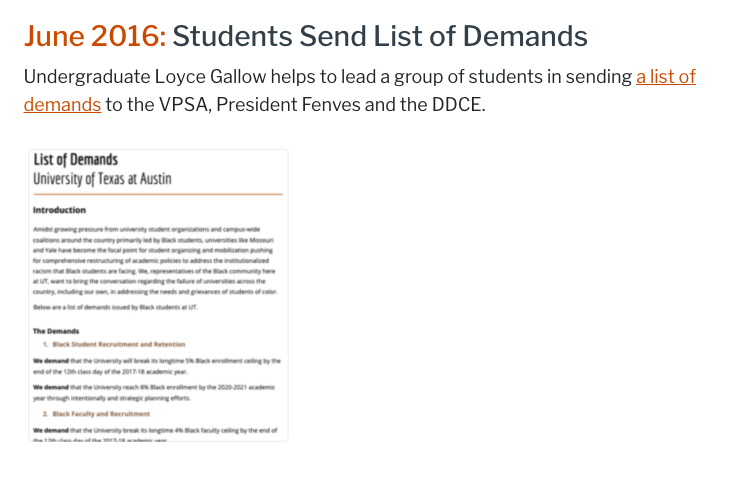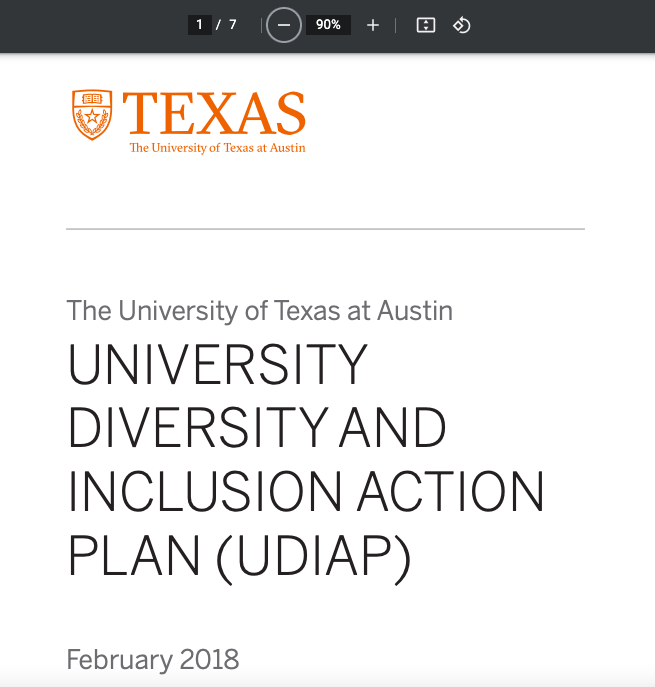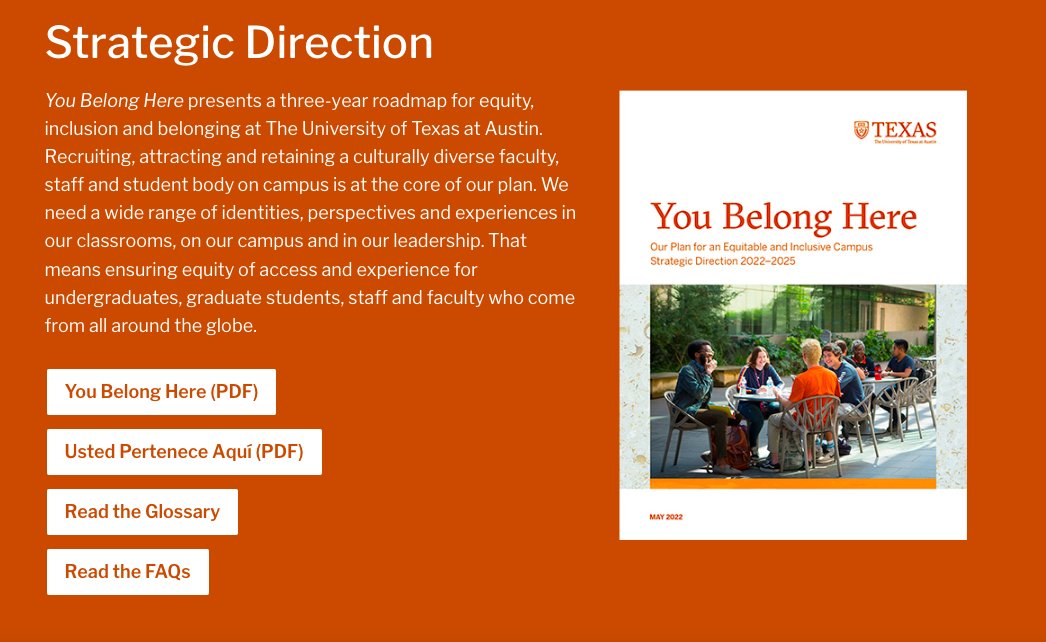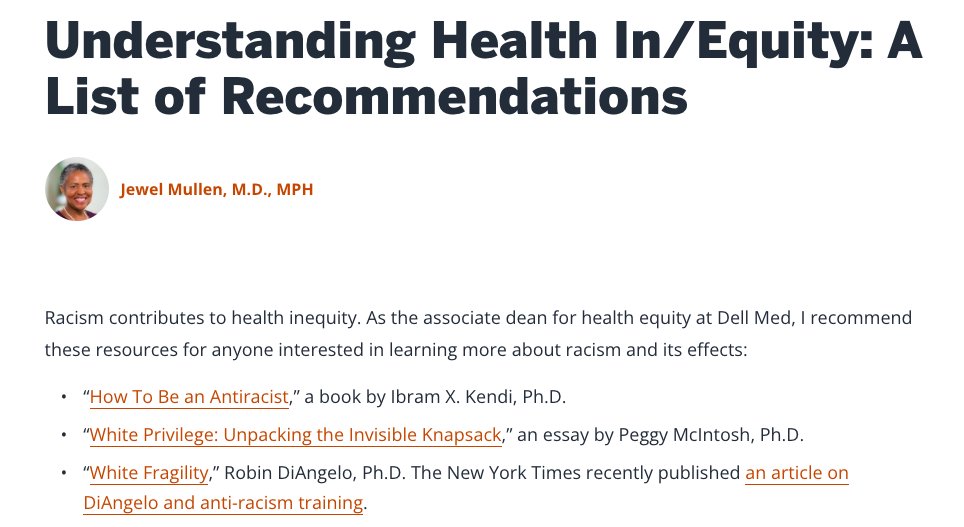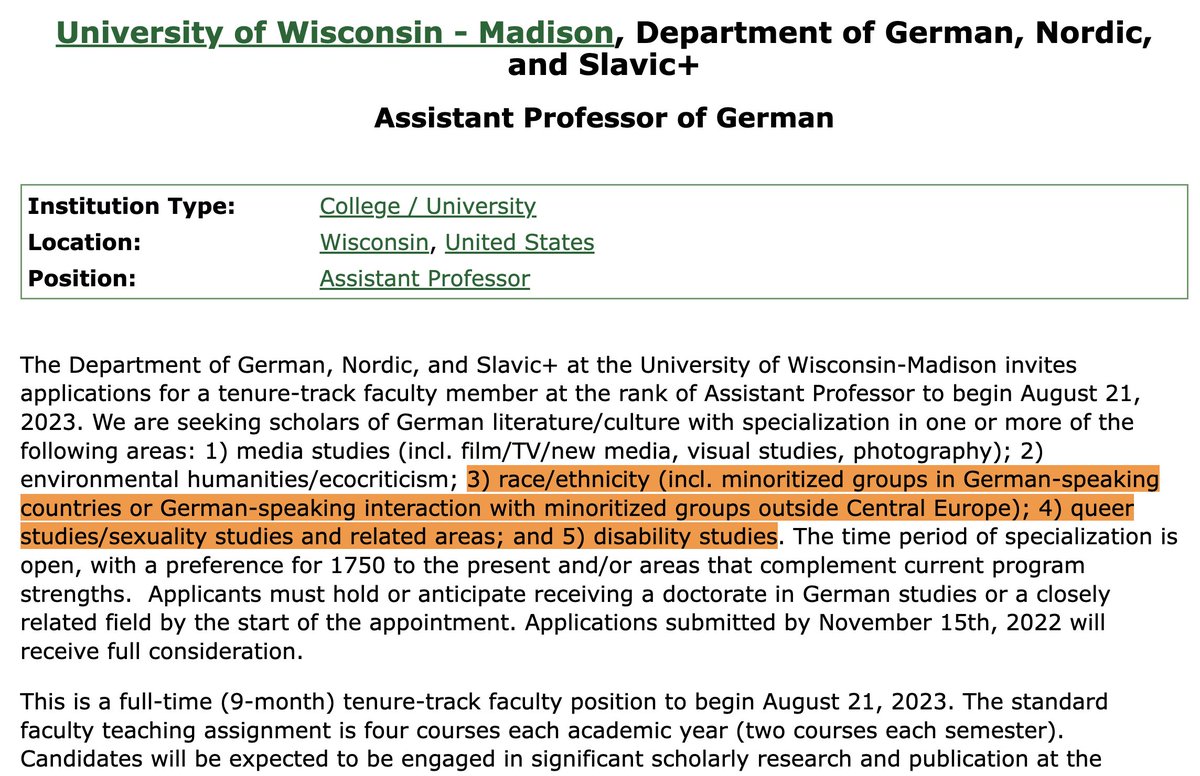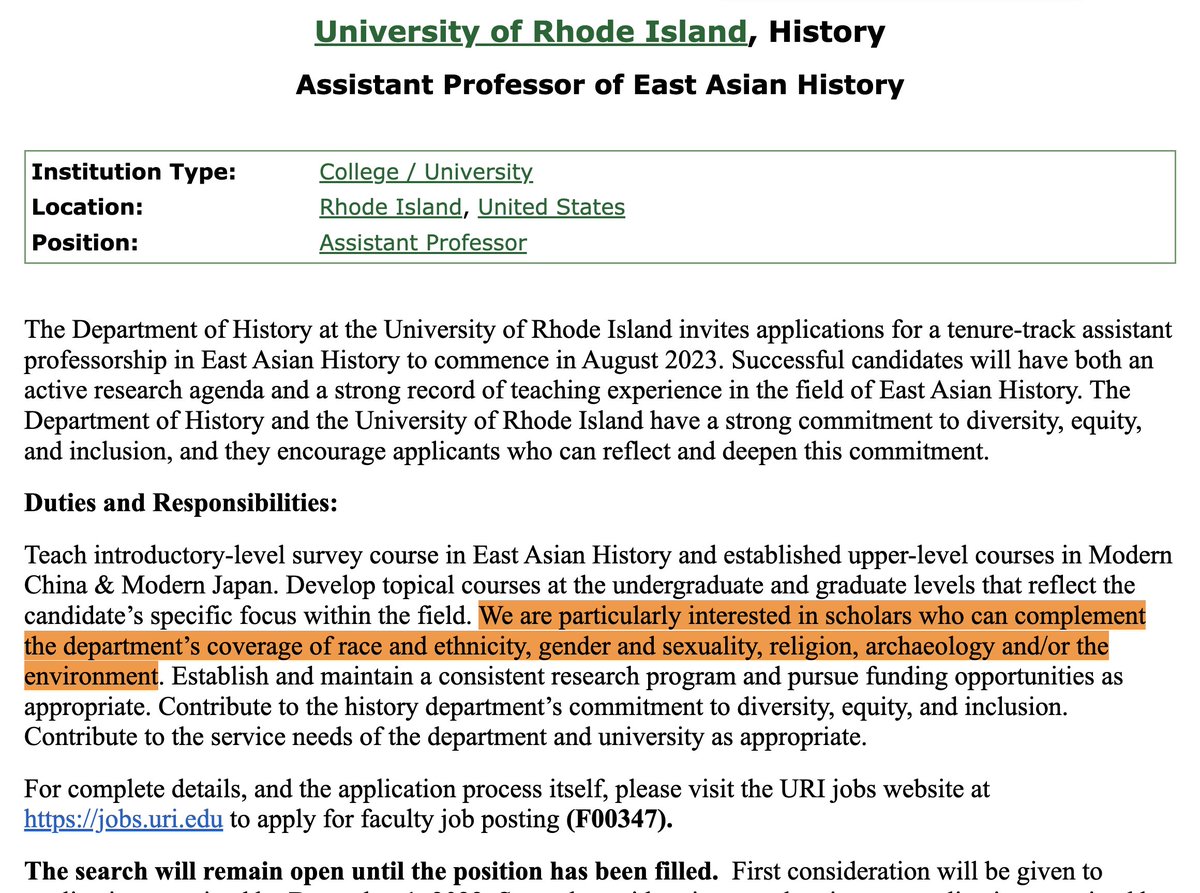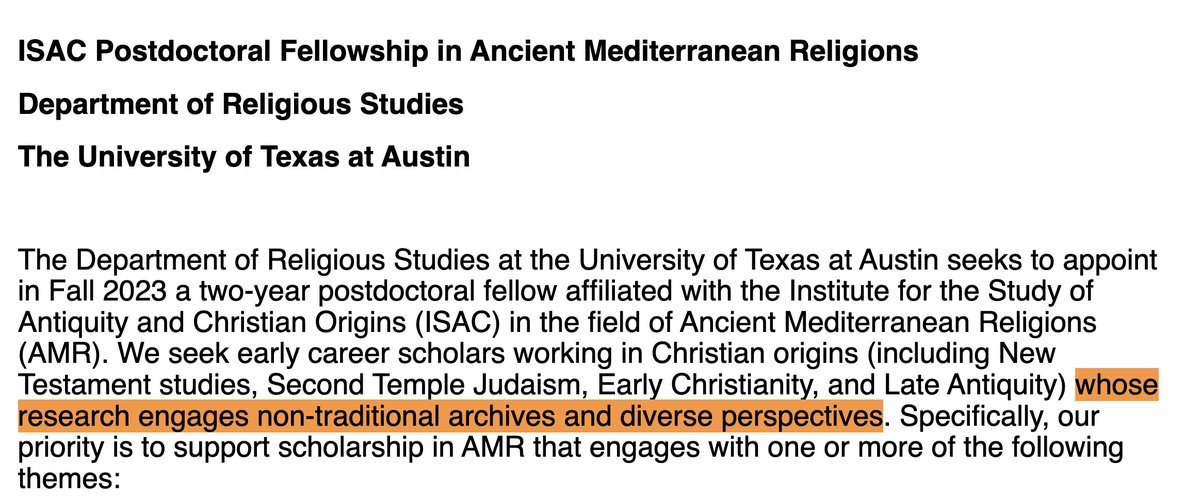
The term “diversity, equity, and inclusion” (DEI) is meant to sound unambiguously beneficent.
But many of the professors I spoke with understand that DEI instead implies a set of controversial political and social views.
My latest in @TheFP.
🧵
thefp.com/p/how-dei-is-s…
But many of the professors I spoke with understand that DEI instead implies a set of controversial political and social views.
My latest in @TheFP.
🧵
thefp.com/p/how-dei-is-s…
@TheFP In June of 2020, UCLA lecturer Gordon Klein made the news after being (briefly) removed from his position — following his blunt response to a student asking him to grade black students more leniently. 
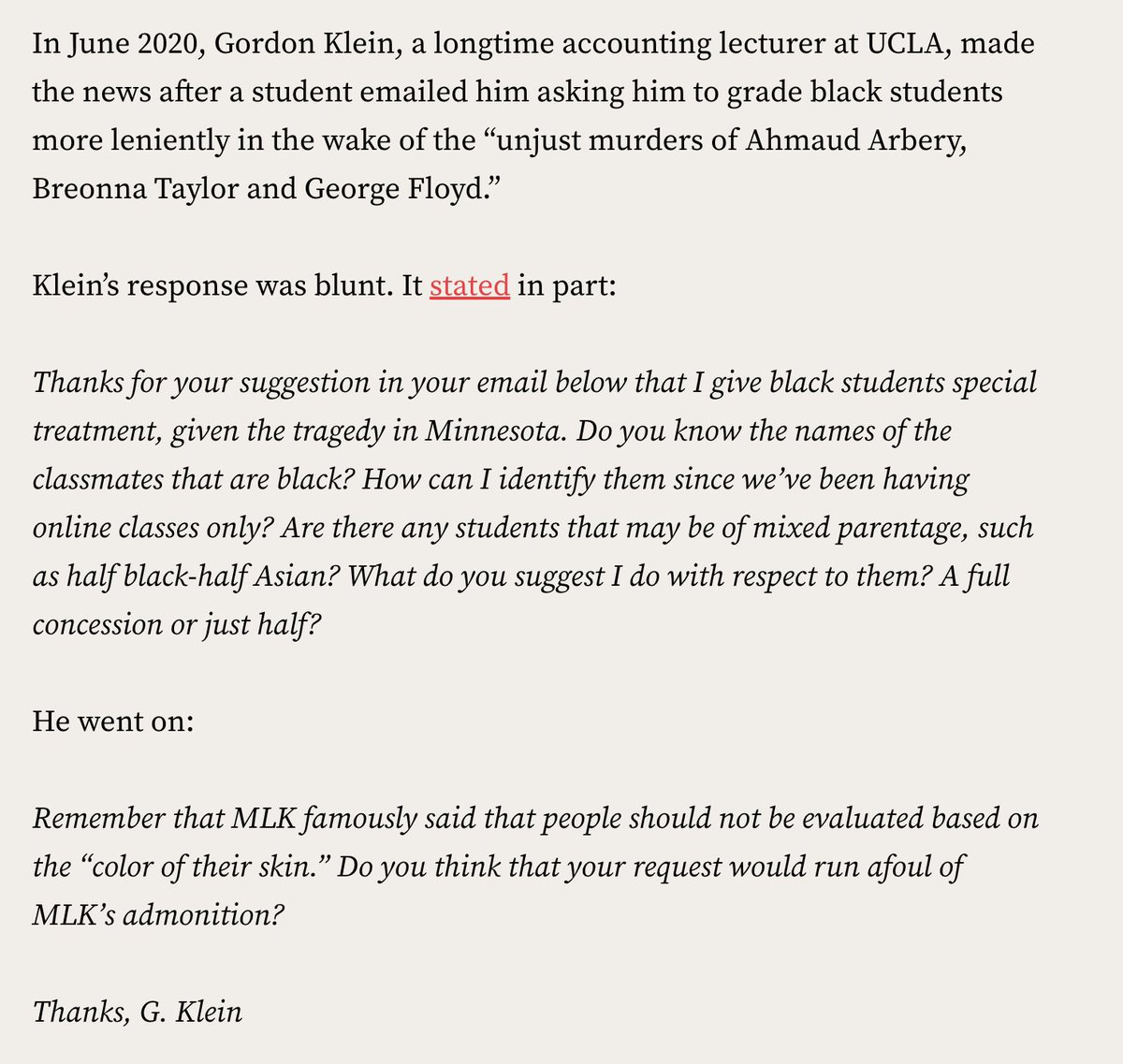
@TheFP Even after being reinstated, his encounters with what UCLA calls “Equity, Diversity, and Inclusion” were far from over. Less than a year later, he was up for a merit raise.
For the first time in his career, he was required to write a diversity statement. Klein objected.
For the first time in his career, he was required to write a diversity statement. Klein objected.
@TheFP “I find it abhorrent for the University to encourage faculty members to classify and prioritize students based on their group identities," he wrote in part.
His past teaching evaluations were sterling, but the merit raise one was declined. (He’s now suing UCLA.)
His past teaching evaluations were sterling, but the merit raise one was declined. (He’s now suing UCLA.)
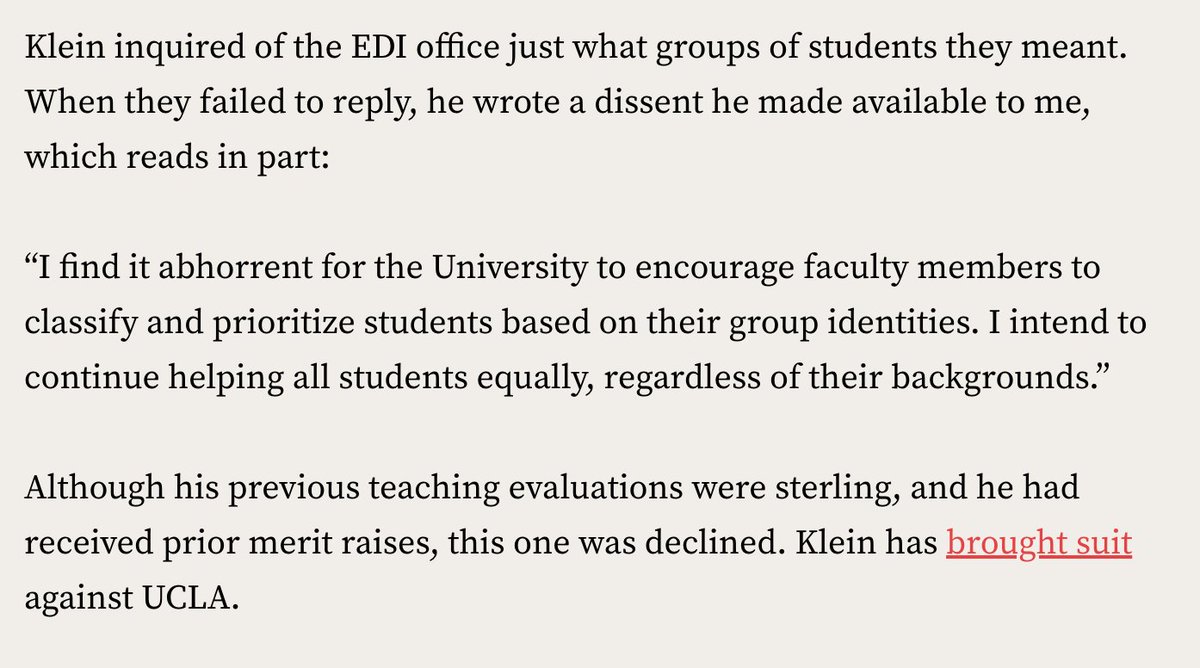
@TheFP The struggle between Klein and UCLA illustrates a major shift in the basic mission of higher education in America.
The concepts of DEI have become guiding principles in higher education, valued as equal to the most basic function of the university: the pursuit of truth.
The concepts of DEI have become guiding principles in higher education, valued as equal to the most basic function of the university: the pursuit of truth.
@TheFP In a short time, DEI imperatives have spawned a growing bureaucracy that holds enormous power within universities.
The ranks of DEI vice presidents, deans, and officers are ever-growing. Princeton has more than 70 administrators devoted to DEI.
Ohio State has 132.
The ranks of DEI vice presidents, deans, and officers are ever-growing. Princeton has more than 70 administrators devoted to DEI.
Ohio State has 132.

@TheFP Institutions are explicit about how they prioritize DEI.
Summarizing its hiring practices, for example, UC Berkeley’s College of Engineering declared that “excellence in advancing equity and inclusion must be considered on par with excellence in research and teaching.”
Summarizing its hiring practices, for example, UC Berkeley’s College of Engineering declared that “excellence in advancing equity and inclusion must be considered on par with excellence in research and teaching.”

@TheFP Likewise, in an article describing their “cultural change initiative,” several deans at Mount Sinai’s Icahn School of Medicine declared:
“There is no priority in medical education that is more important than addressing and eliminating racism and bias.”

“There is no priority in medical education that is more important than addressing and eliminating racism and bias.”
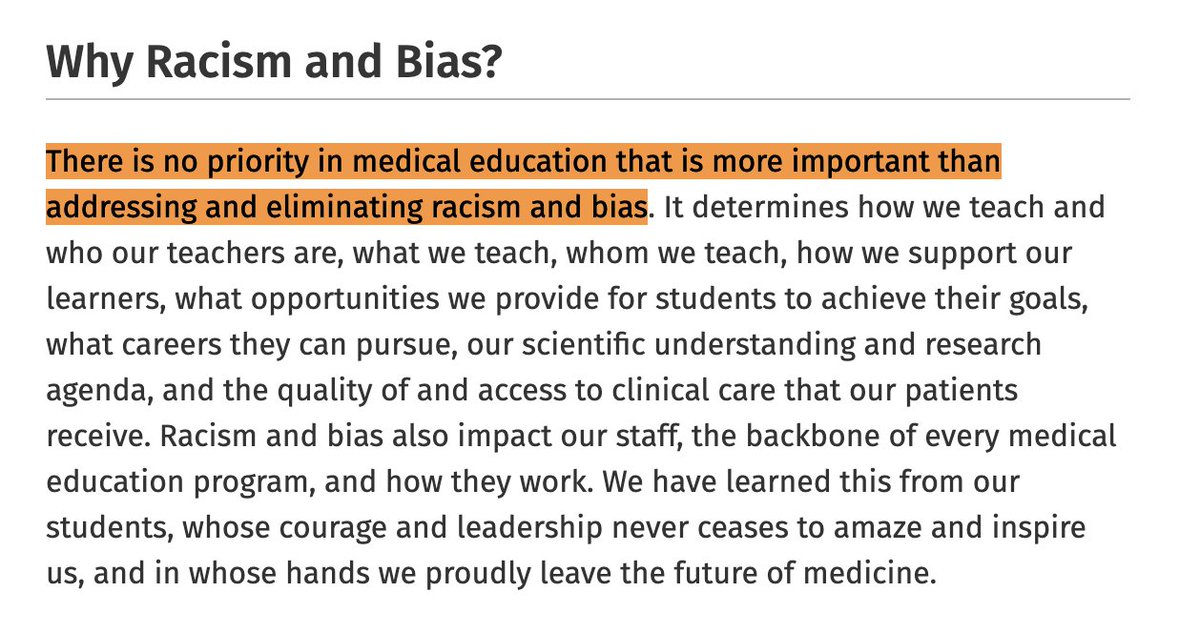
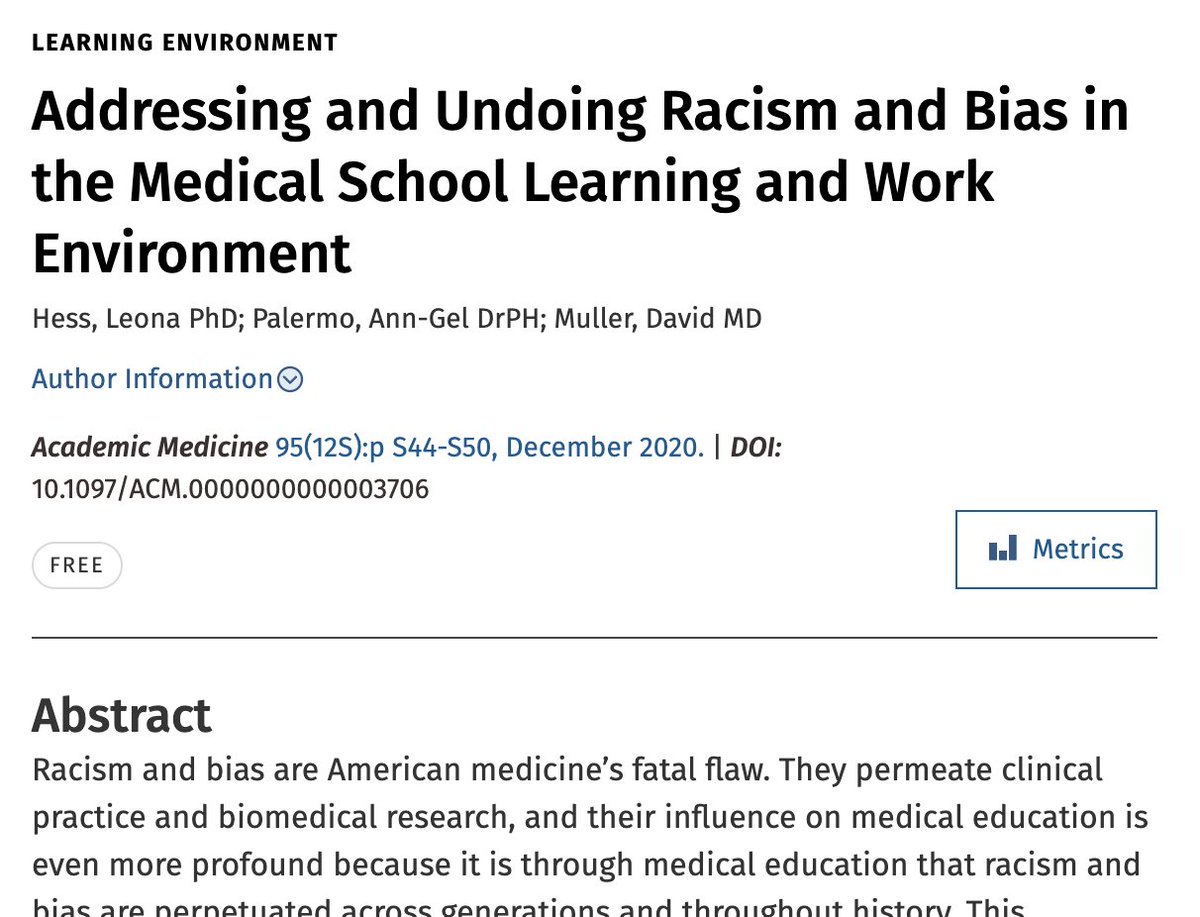
@TheFP While interviewing more than two dozen professors for this article, I was told repeatedly that few within academia dare express skepticism about DEI.
Many professors who are privately critical of DEI declined to speak even anonymously for fear of professional consequences.
Many professors who are privately critical of DEI declined to speak even anonymously for fear of professional consequences.
@TheFP How has this shift taken place? Gradually, then all at once. Starting around the 1980s, following the Bakke decision, diversity became a rallying cry for college administrators.
By the 2010s, this commitment often came backed by bureaucracies with flowery titles.
By the 2010s, this commitment often came backed by bureaucracies with flowery titles.
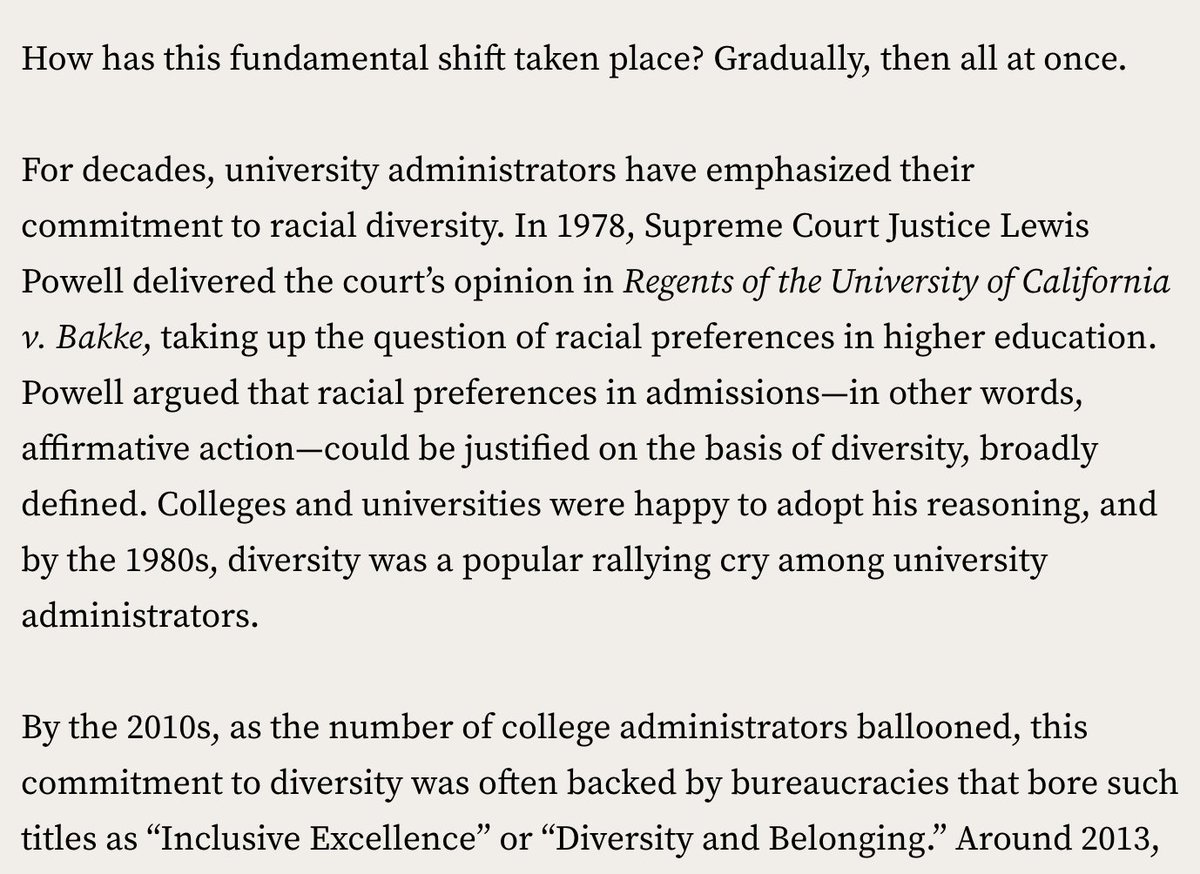
@TheFP Policies followed.
For example, in the early 2010s, the UC system started experimenting with diversity statements in hiring.
In 2018, UT Austin published a University Diversity and Inclusion Action Plan, which began to embed diversity committees throughout the university.


For example, in the early 2010s, the UC system started experimenting with diversity statements in hiring.
In 2018, UT Austin published a University Diversity and Inclusion Action Plan, which began to embed diversity committees throughout the university.
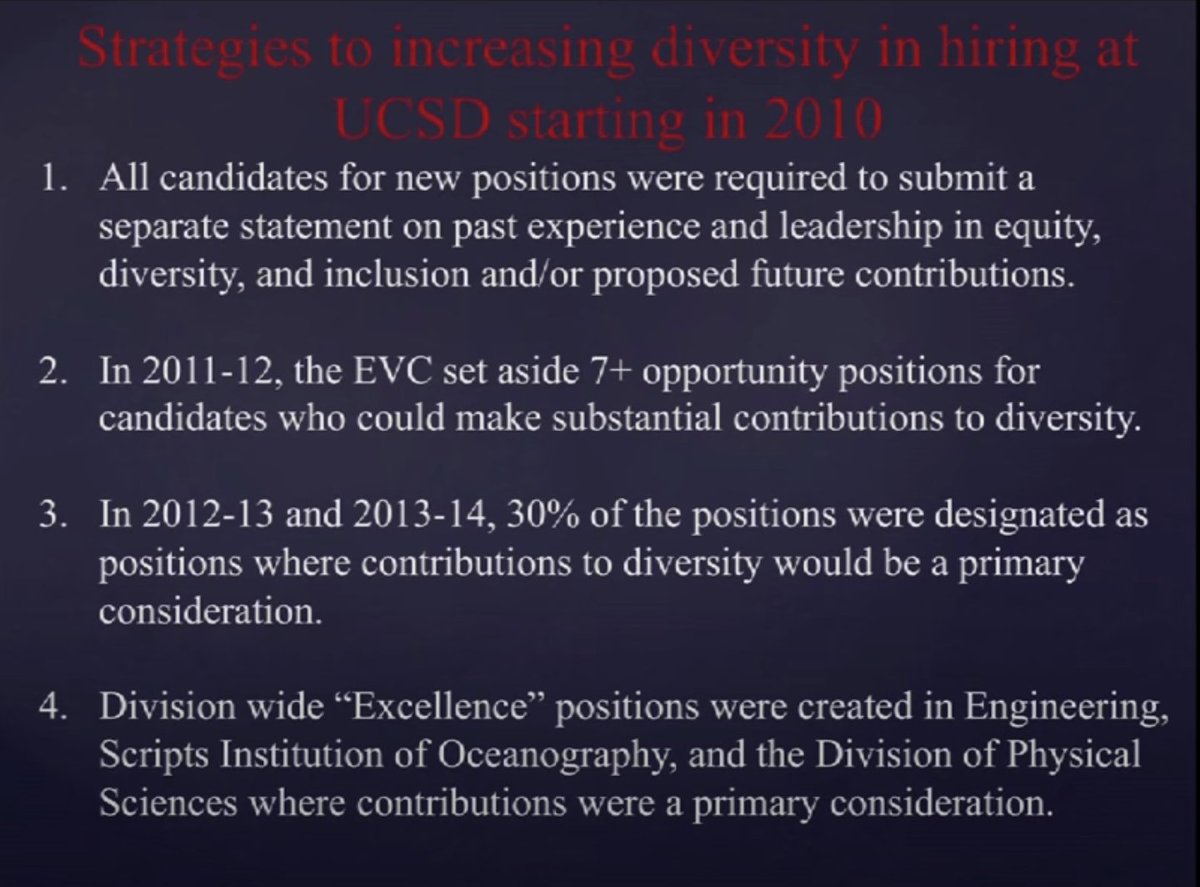
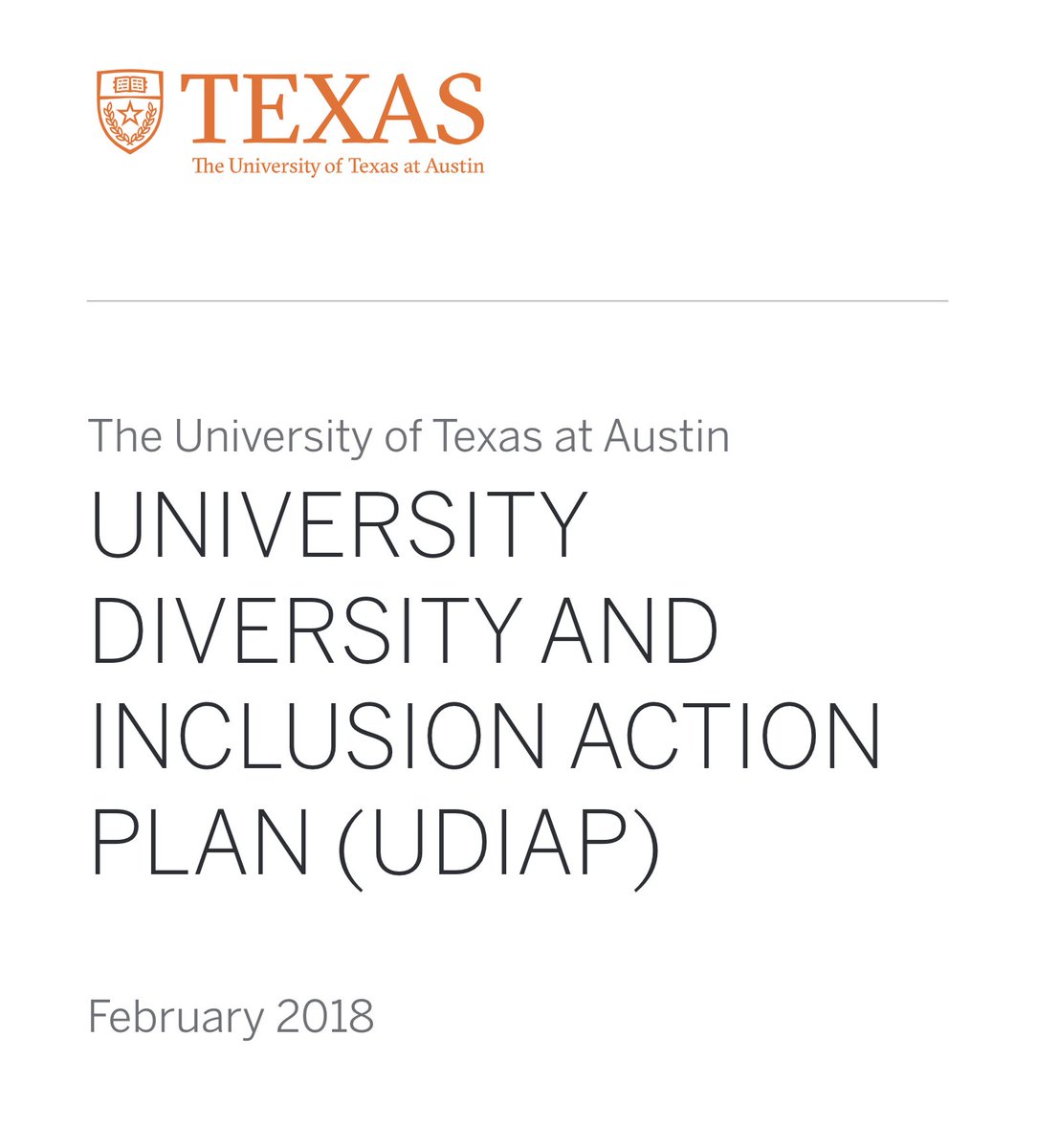
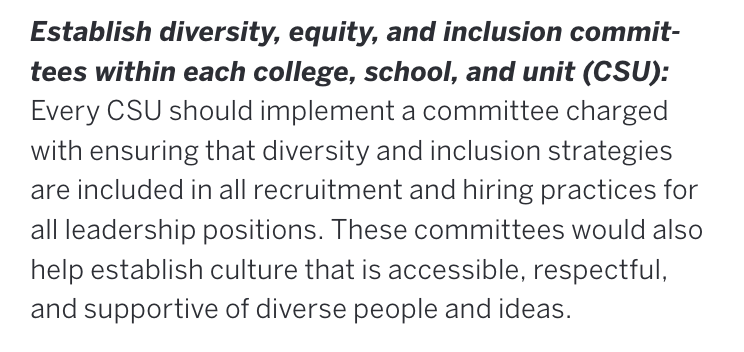
@TheFP Then came 2020. A Cambrian explosion of DEI policies. Any institution that wasn’t previously on board was pressured to make large commitments to DEI. Those already committed redoubled their efforts.
UT Austin soon created a faculty DEI plan, which calls for adding DEI to P&T.

UT Austin soon created a faculty DEI plan, which calls for adding DEI to P&T.
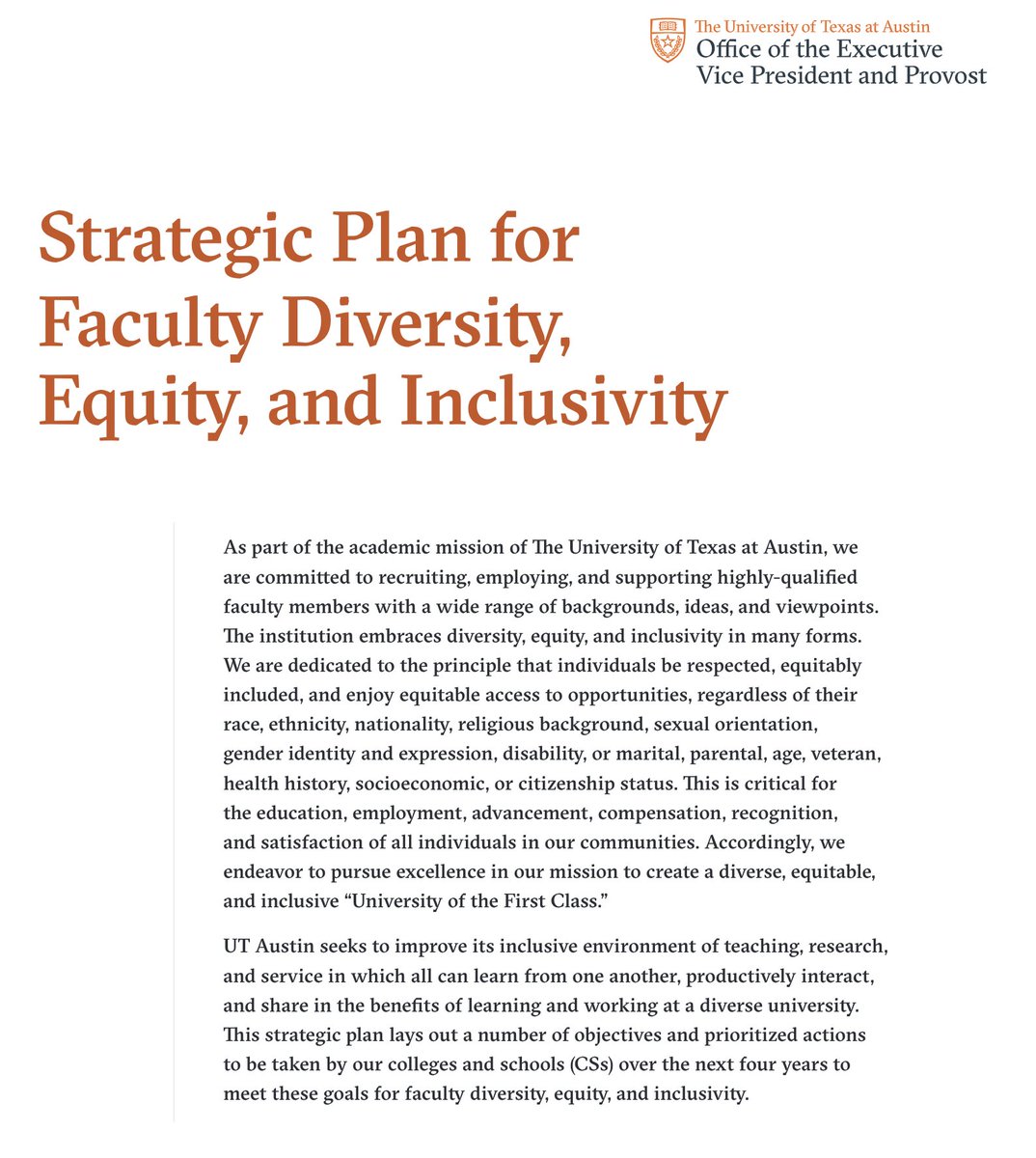
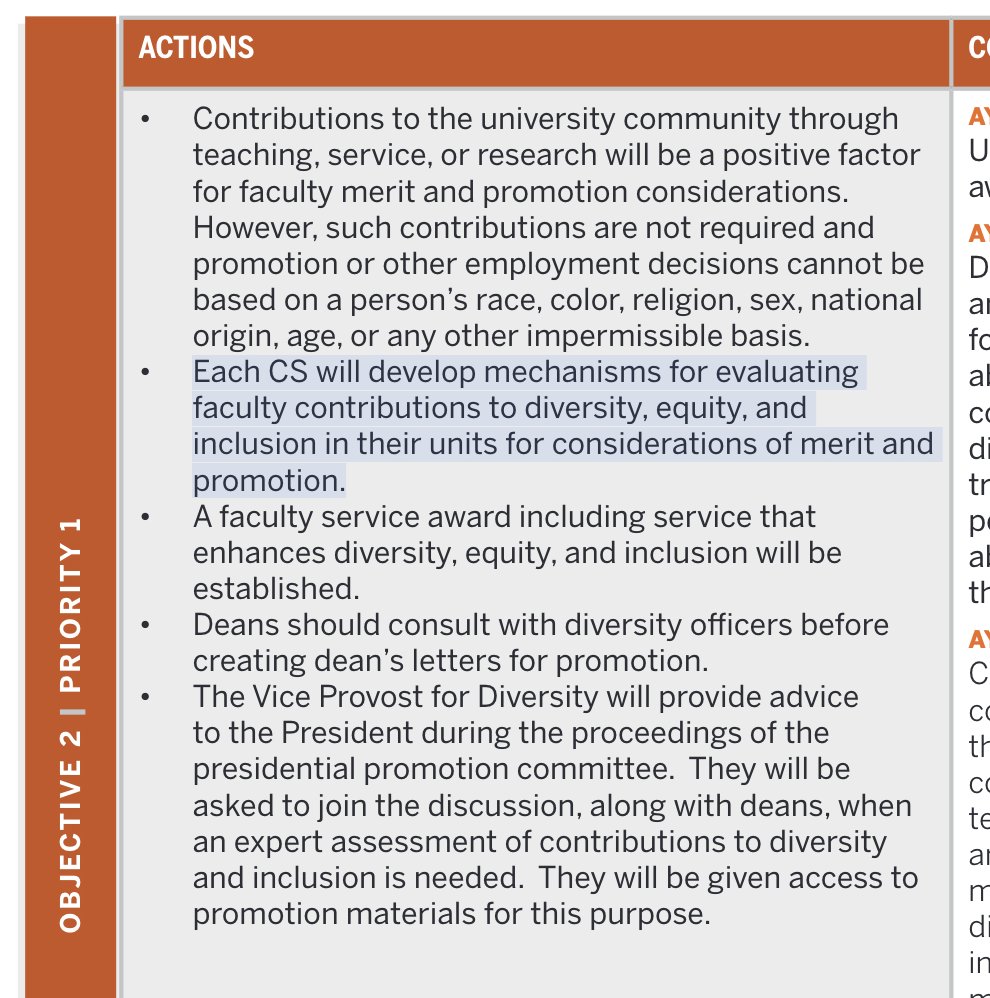
@TheFP Student activists also successfully demanded large DEI plans.
White Coats For Black Lives, a medical student organization that calls for the dismantling of prisons, police, and capitalism, successfully petitioned medical schools around the country to embrace DEI overhauls.


White Coats For Black Lives, a medical student organization that calls for the dismantling of prisons, police, and capitalism, successfully petitioned medical schools around the country to embrace DEI overhauls.
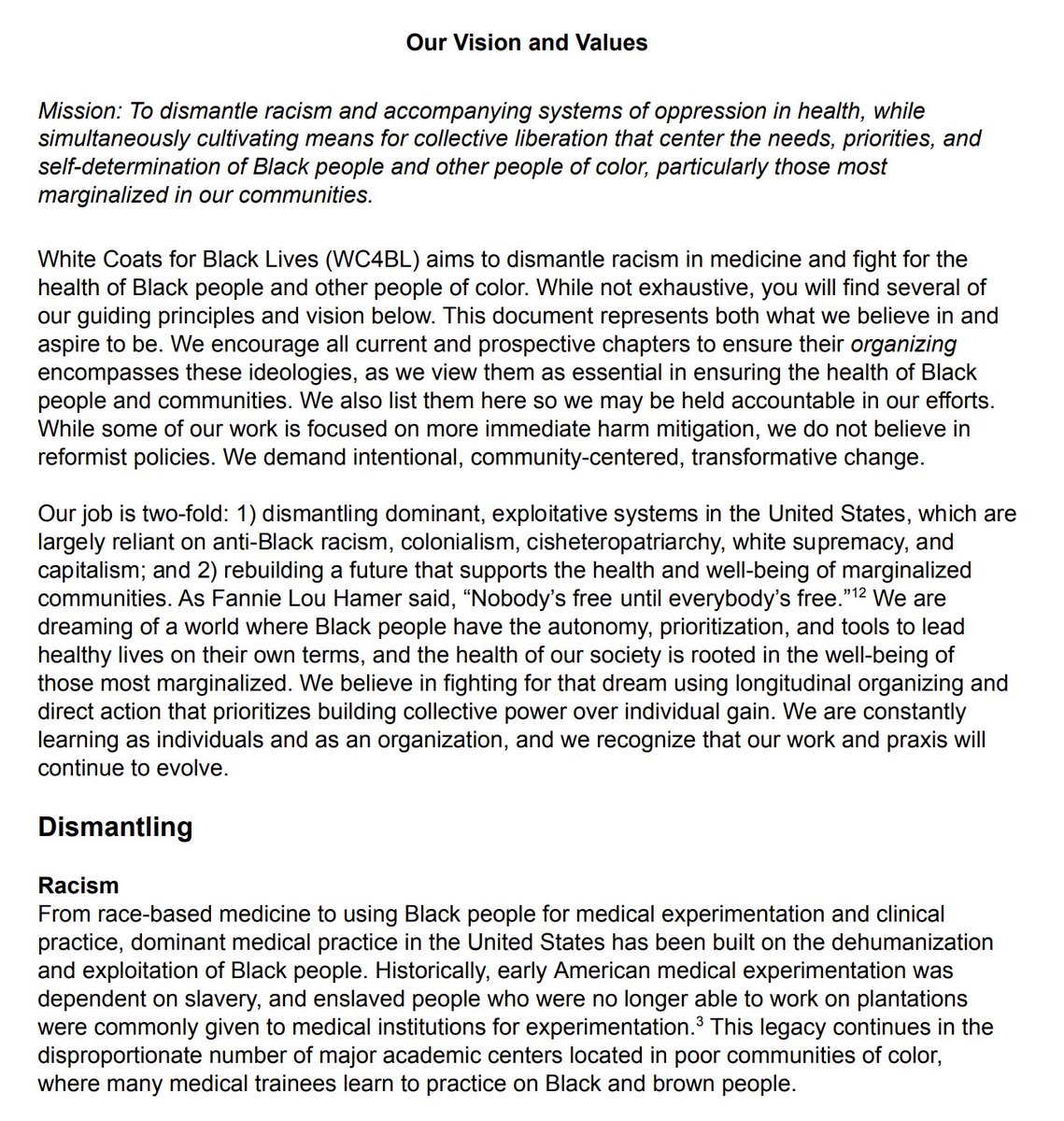
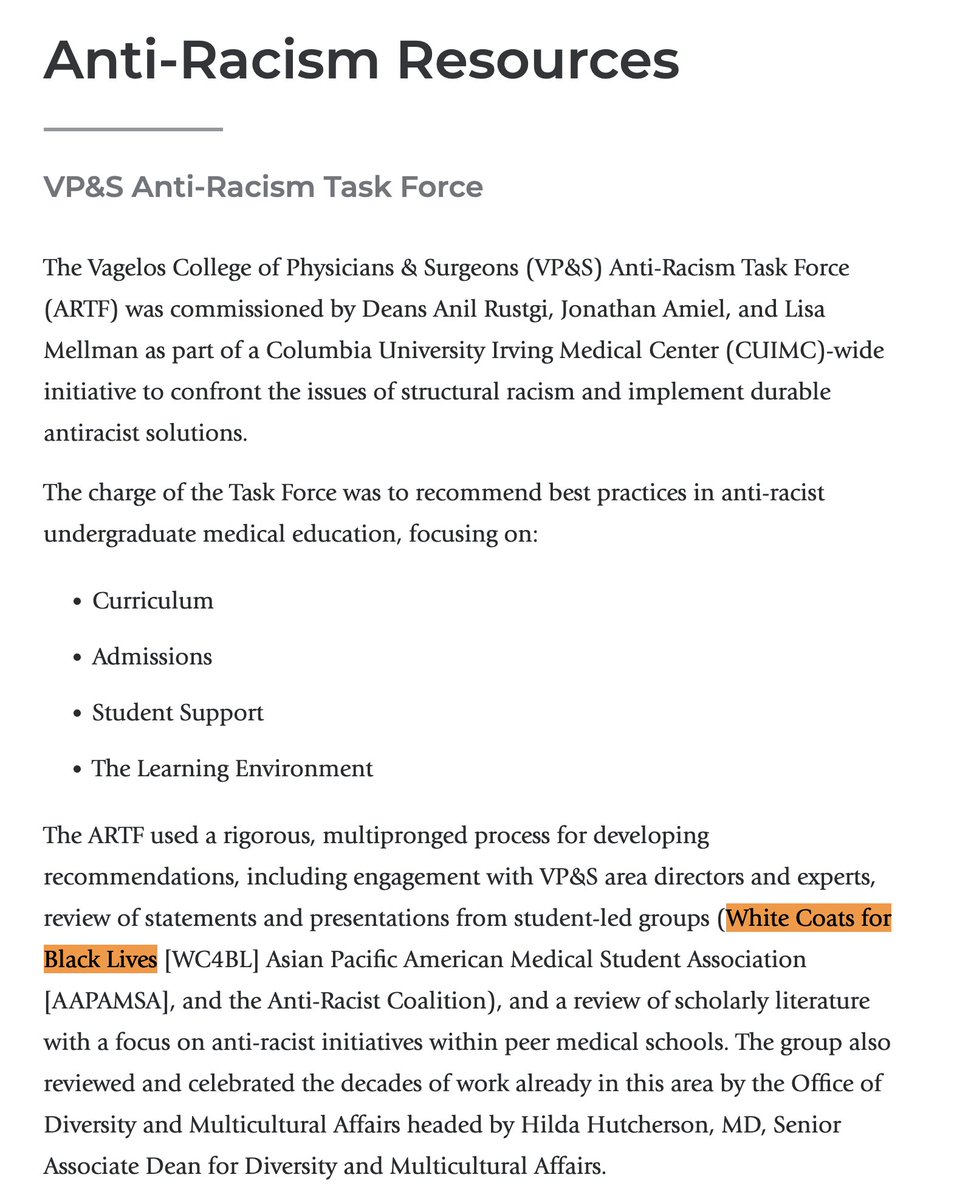
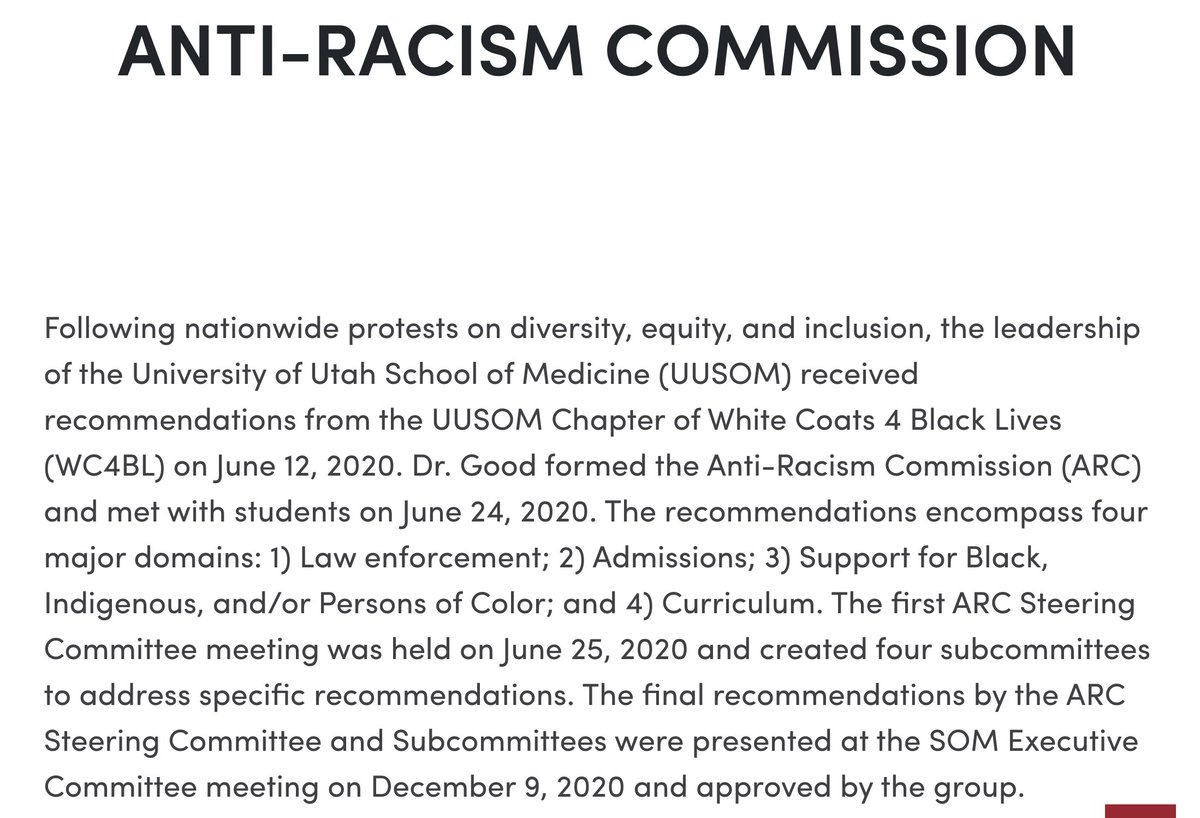
@TheFP All at once, policies that previously seemed extreme—like DEI requirements for tenure and mandatory education in Critical Race Theory—became widespread.
@TheFP The upshot is that the entire experience of higher education—from earning a college degree to seeking a career in academia—now requires saturation in the principles of DEI.
@TheFP Many American college students are now required to take DEI, anti-racism, or social justice courses.
Bentley University in Massachusetts and the Wharton School have both created DEI majors.



Bentley University in Massachusetts and the Wharton School have both created DEI majors.
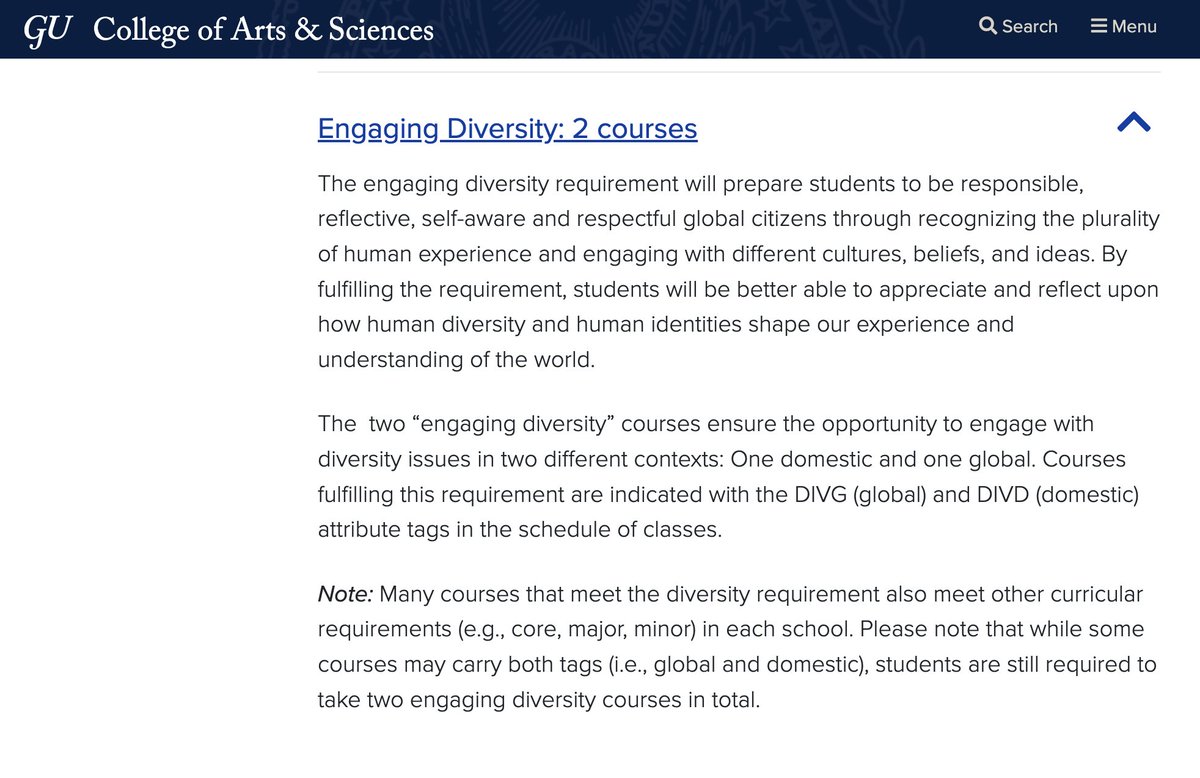
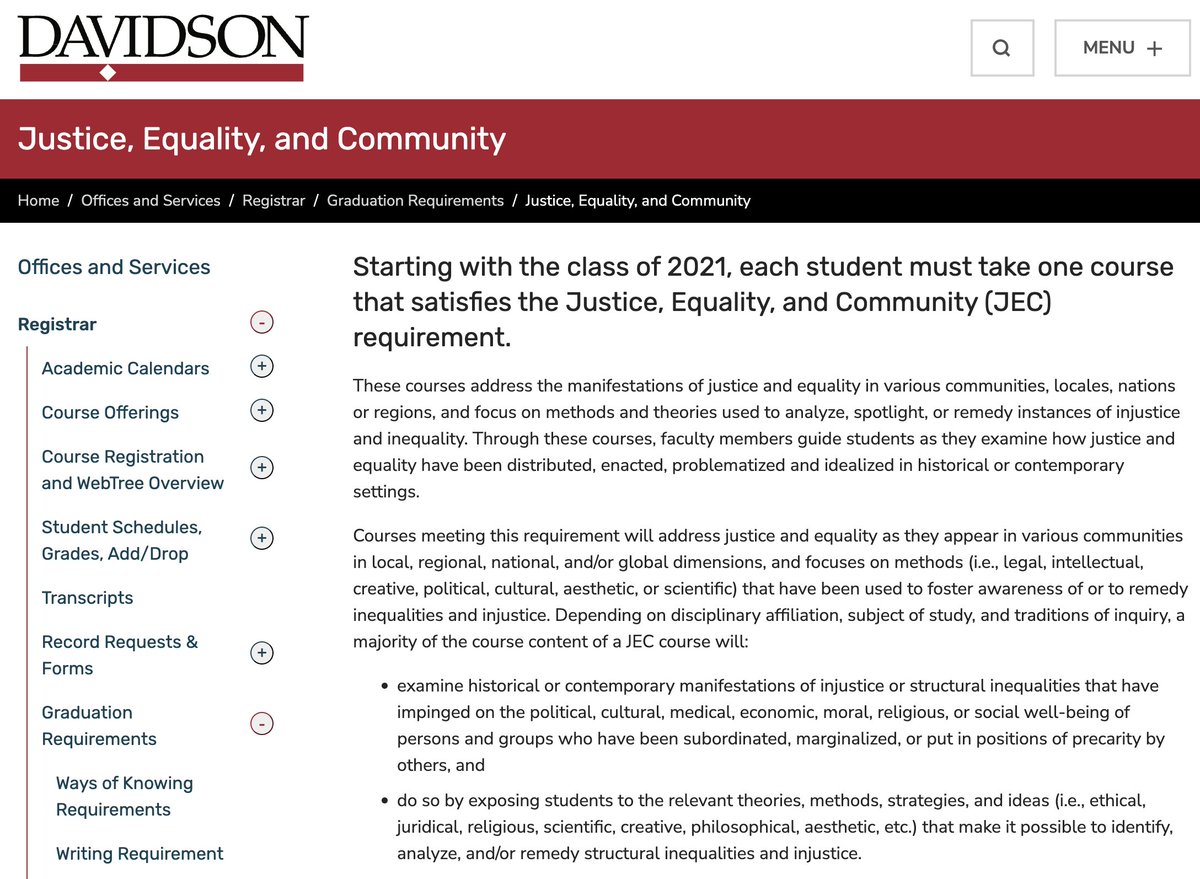
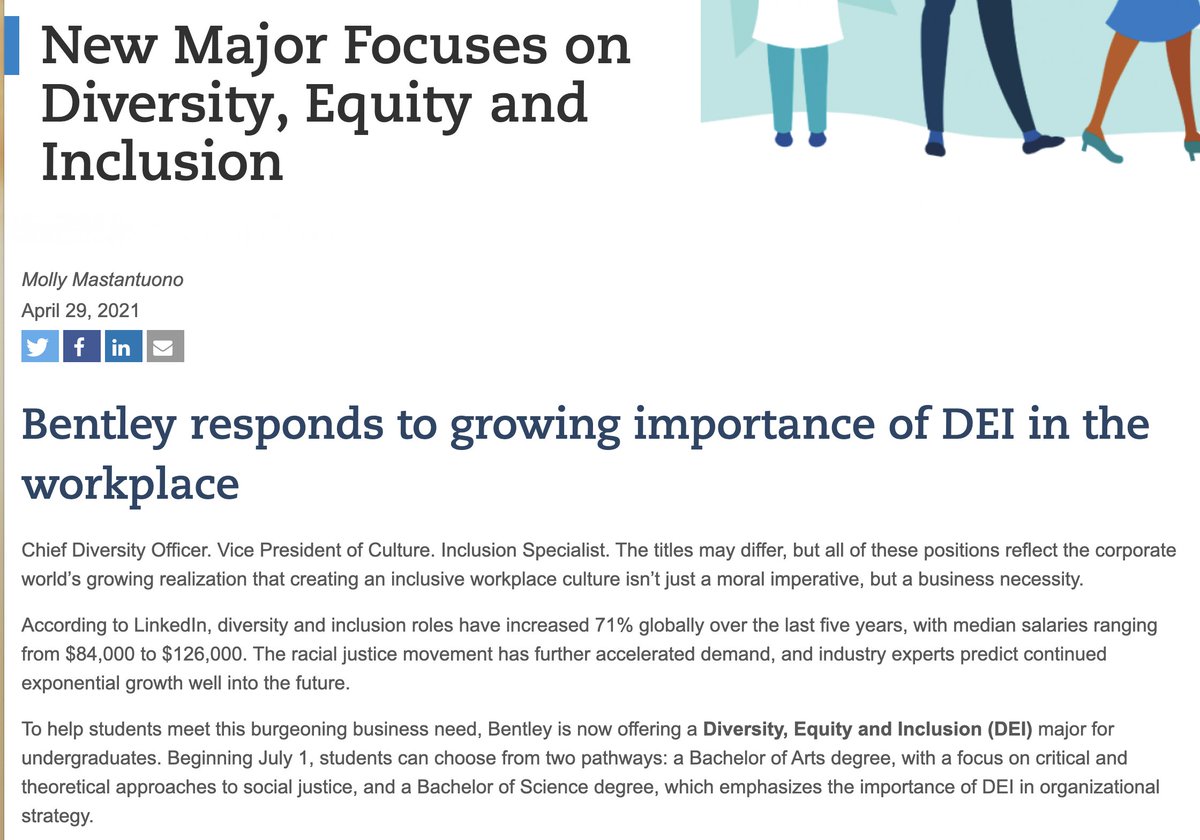
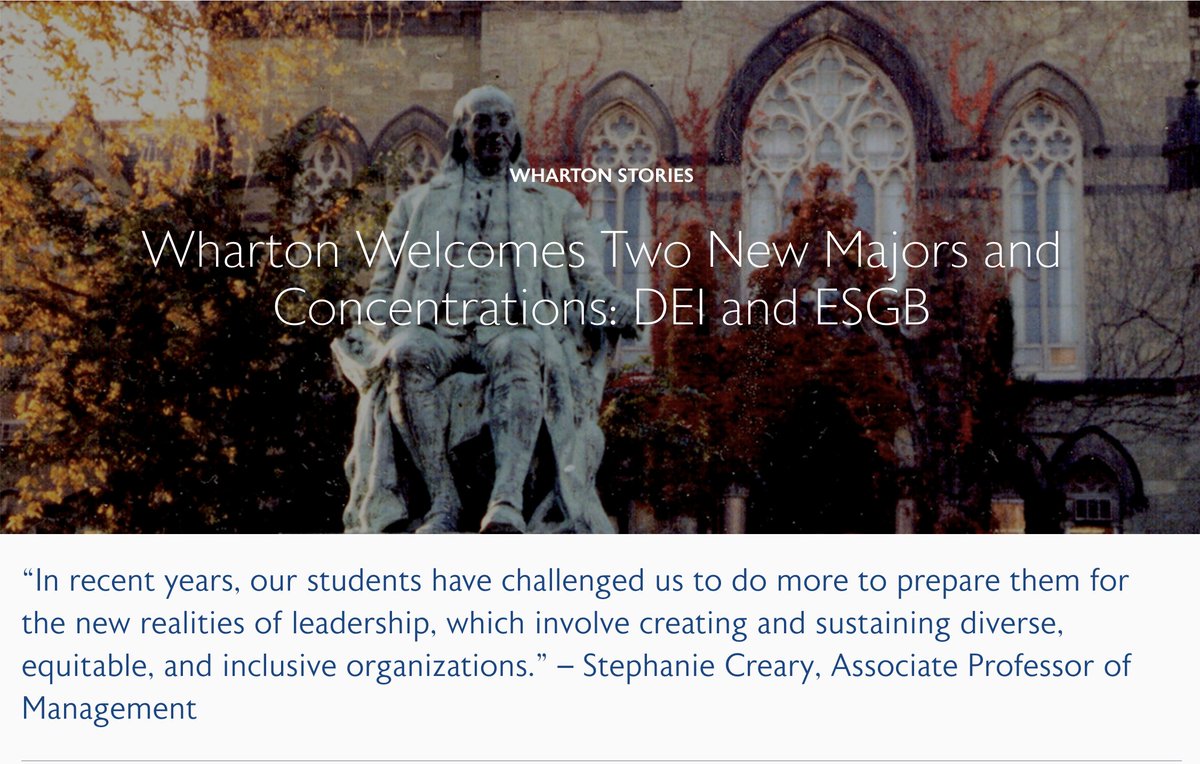
@TheFP Meanwhile, many of the open faculty position listings at universities across the country illustrate how a focus on race, gender, social justice, and critical theory can be crucial to landing a job. 


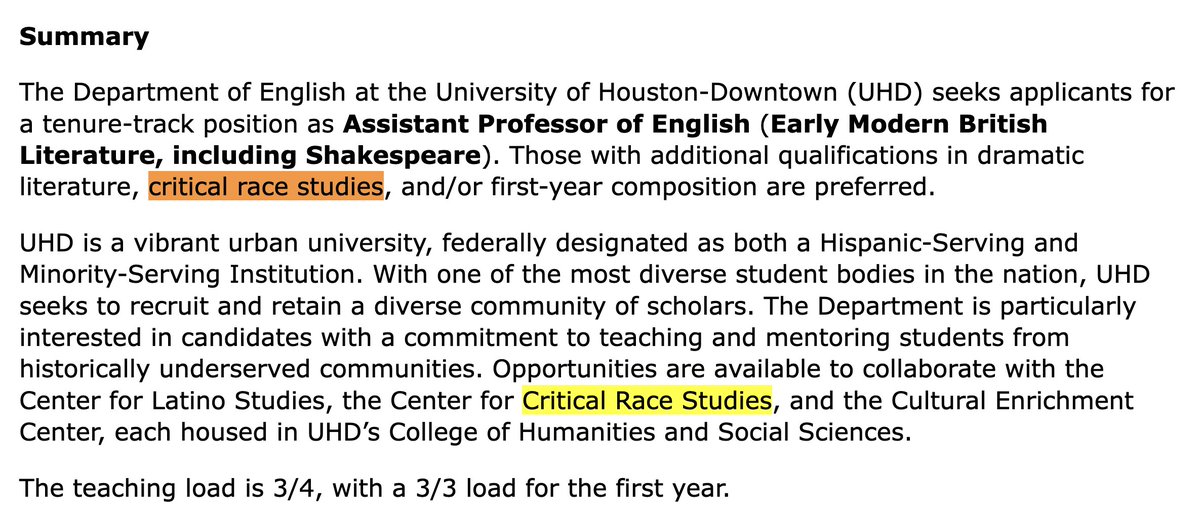
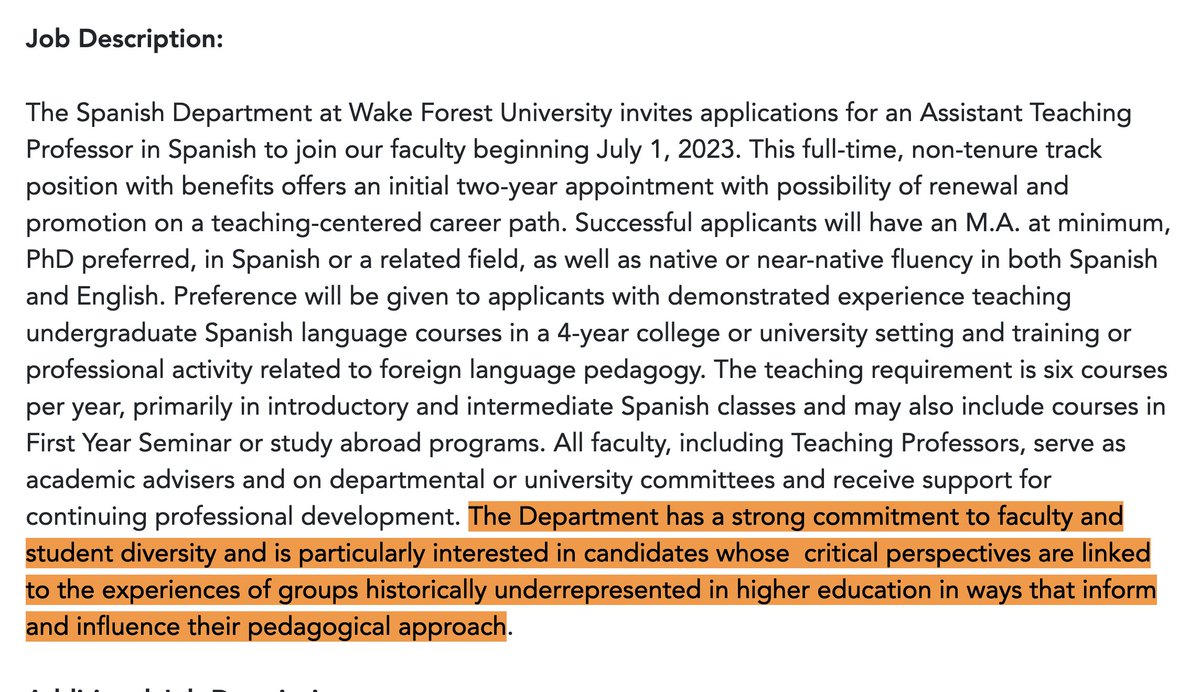
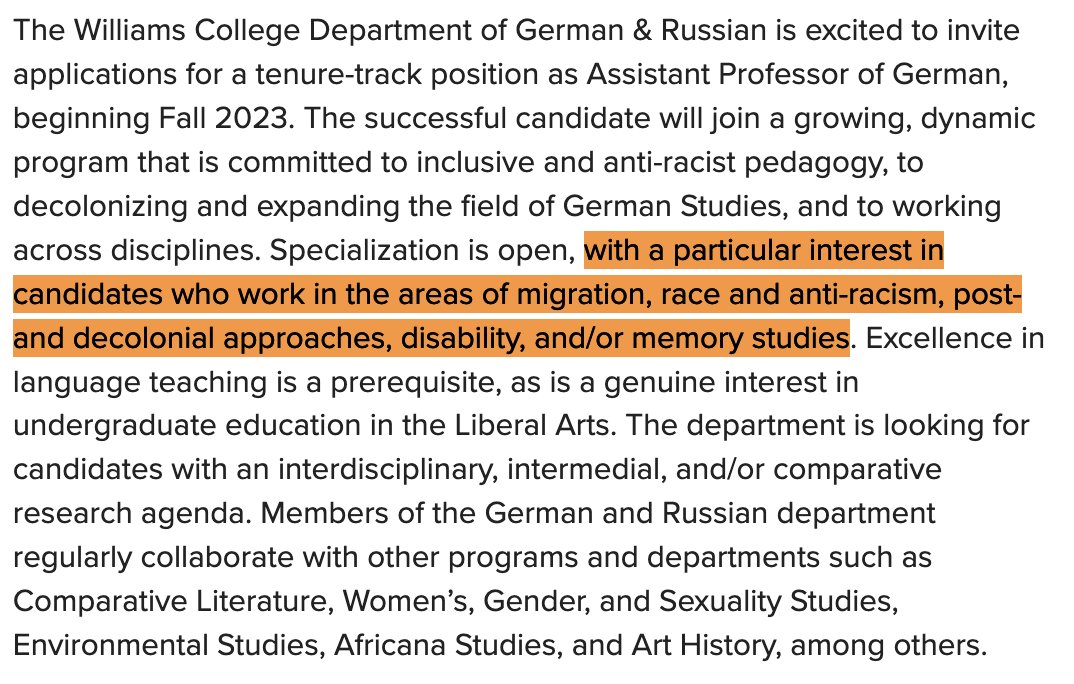
@TheFP These imperatives often come from the top.
For example, last year, the California Community Colleges system—the largest system of higher education in the country—decreed that every employee must be evaluated for their DEI competencies.
For example, last year, the California Community Colleges system—the largest system of higher education in the country—decreed that every employee must be evaluated for their DEI competencies.
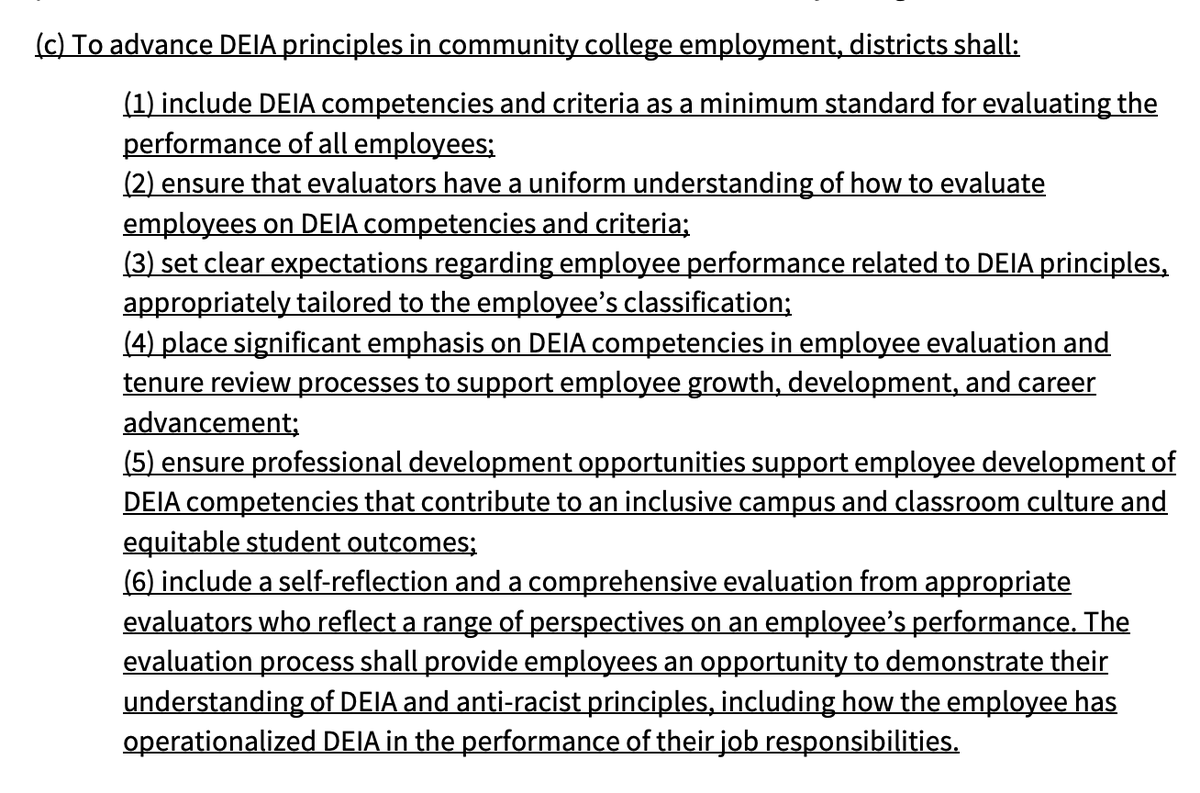
@TheFP The California Community Colleges Chancellor’s Office released a list of recommended competencies.
It suggested faculty create a curriculum that “promotes a race-conscious and intersectional lens” and advocate for “anti-racist goals and initiatives.”

It suggested faculty create a curriculum that “promotes a race-conscious and intersectional lens” and advocate for “anti-racist goals and initiatives.”
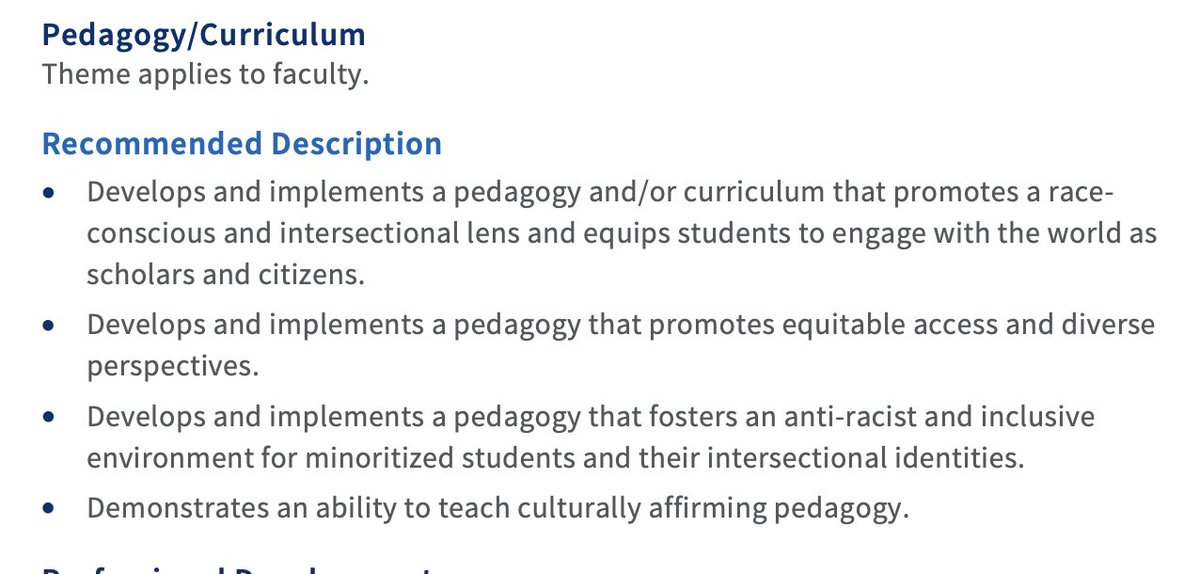
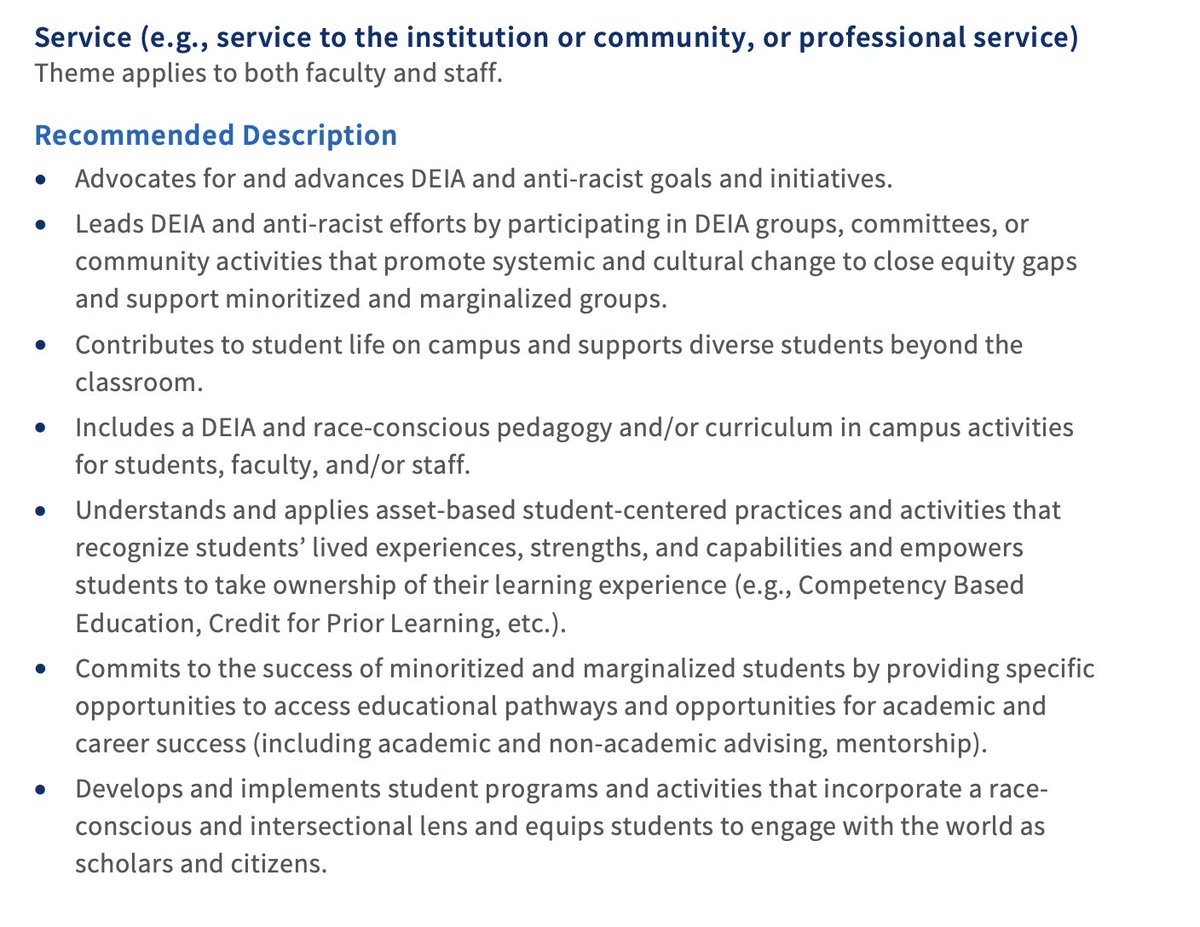
@TheFP The system also released a document that describes how to incorporate DEI into the curriculum.
One key line: “Take care not to ‘weaponize’ academic freedom and academic integrity as tools to impede equity in an academic discipline or inflict curricular trauma on our students...”
One key line: “Take care not to ‘weaponize’ academic freedom and academic integrity as tools to impede equity in an academic discipline or inflict curricular trauma on our students...”
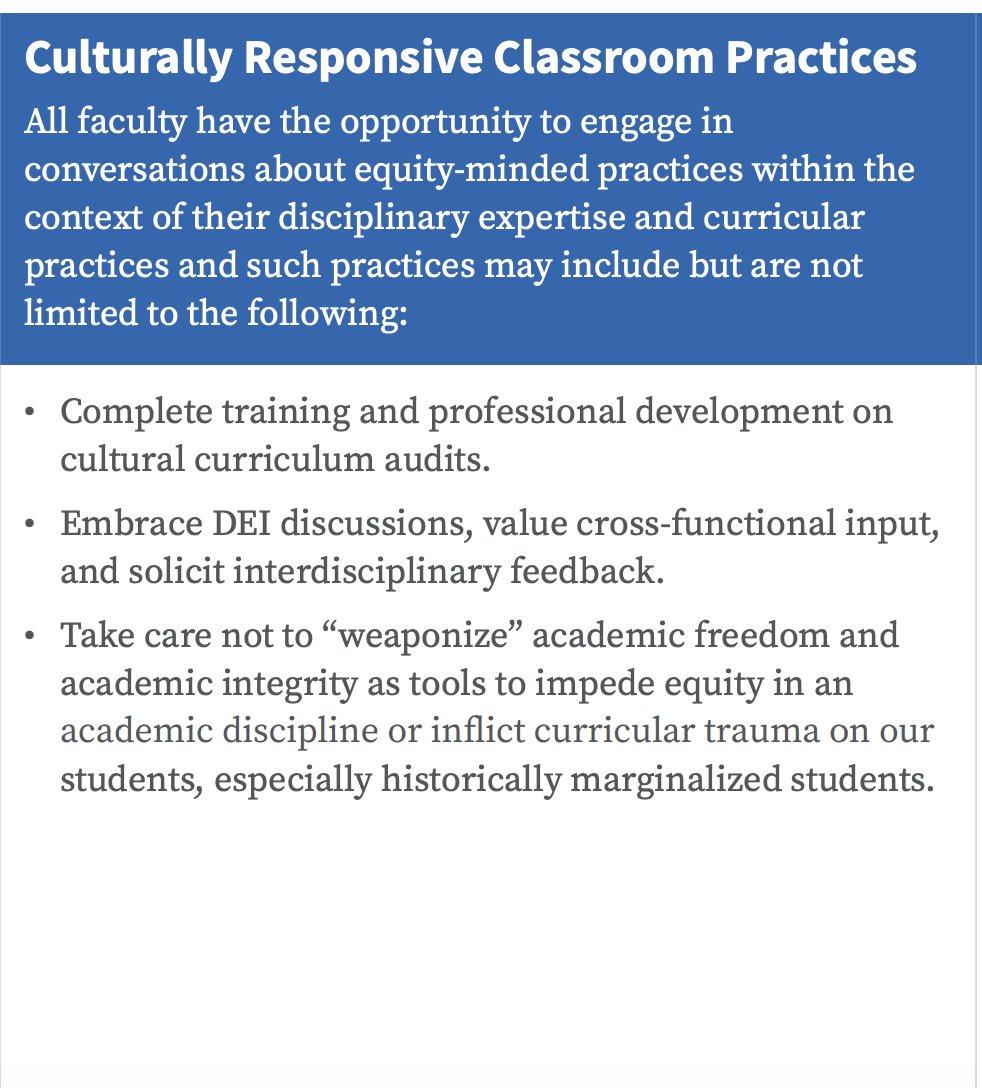
@TheFP It's telling that the CCC system warns against taking academic freedom too far—especially for the sake of avoiding “curricular trauma.”
A successful liberal education is unsettling by design.
A successful liberal education is unsettling by design.
@TheFP DEI now dictates how academic research is conducted.
For example, the Society for Personality and Social Psychology recently created a “diversity, inclusion, and anti-racism” statement requirement for anyone presenting at its annual convention.

For example, the Society for Personality and Social Psychology recently created a “diversity, inclusion, and anti-racism” statement requirement for anyone presenting at its annual convention.
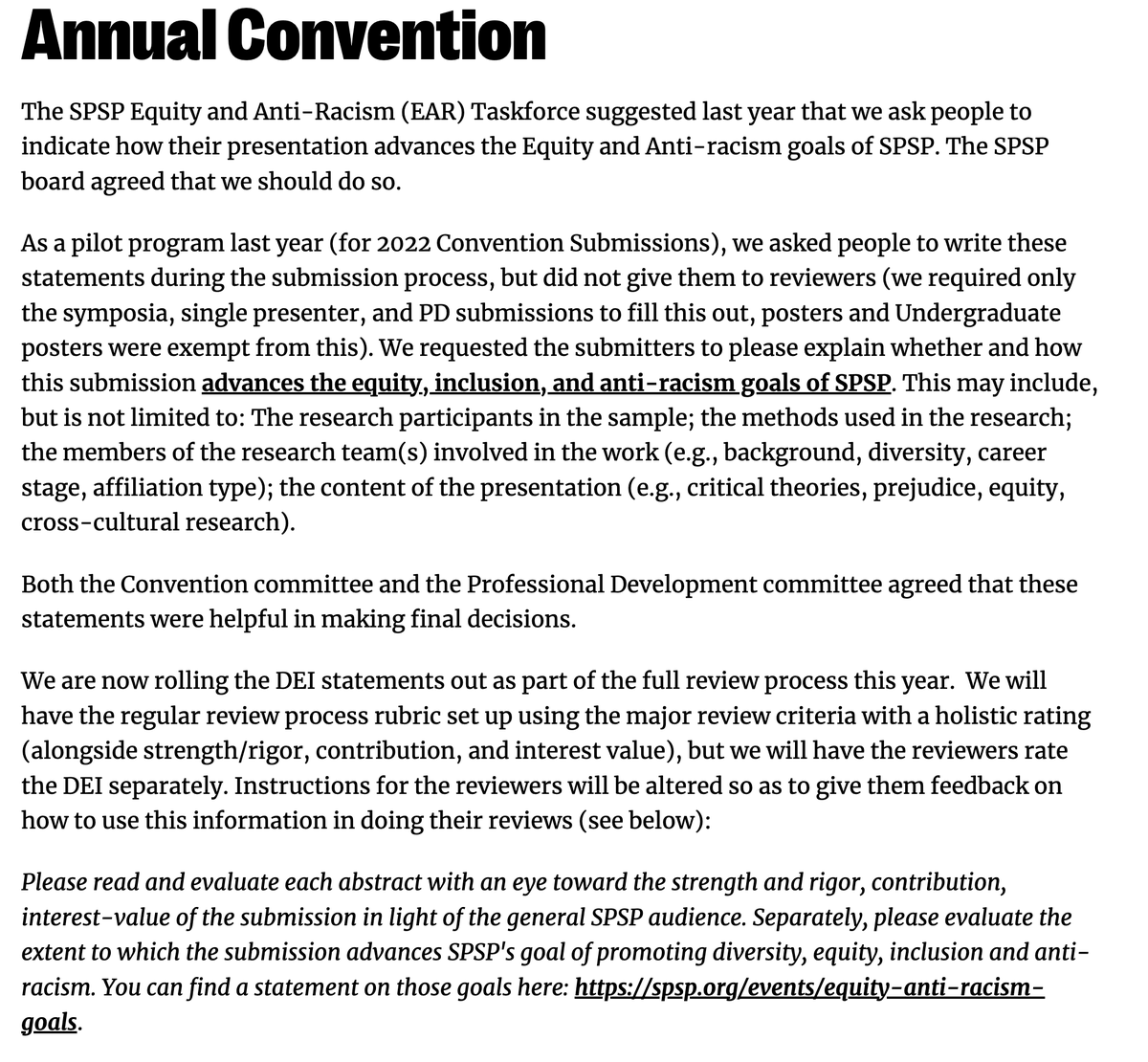
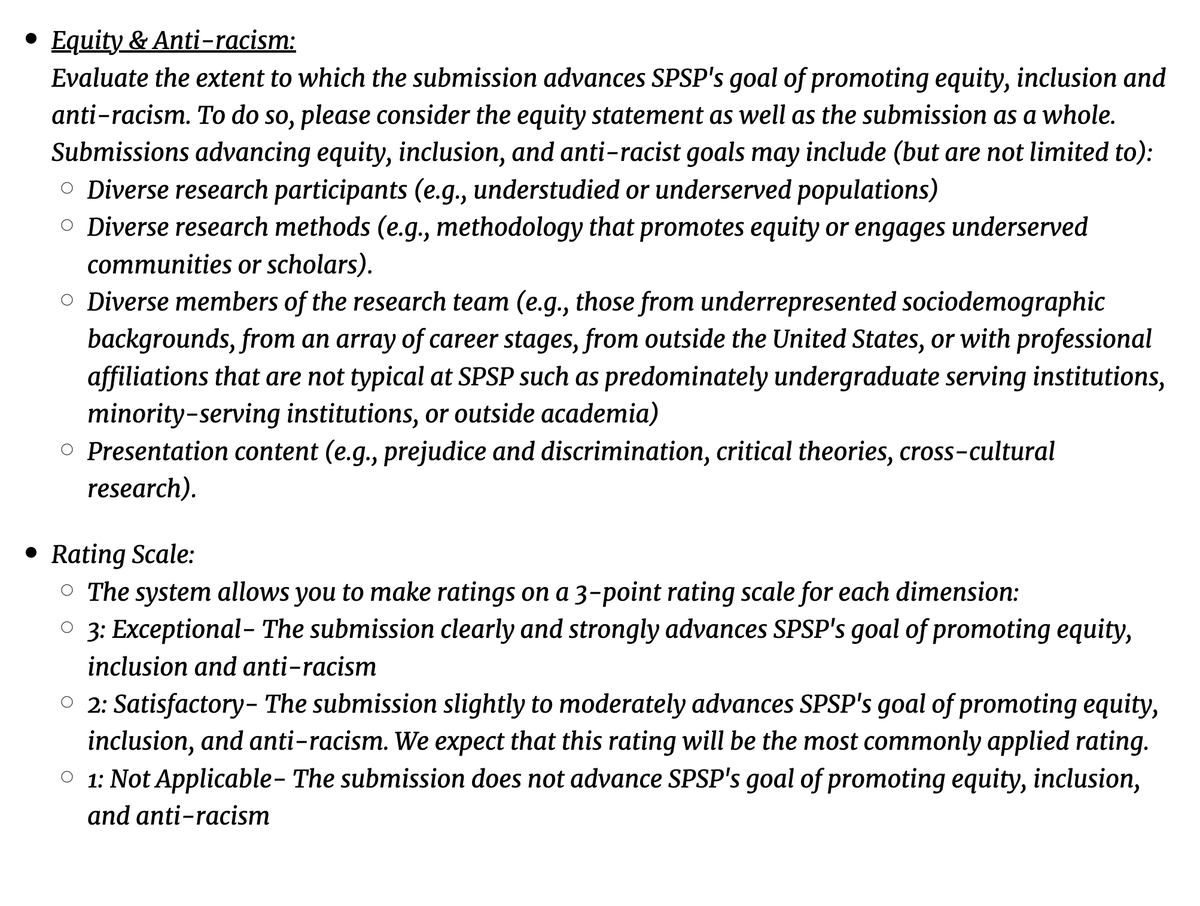
@TheFP The SPSP was one of the first places where Jonathan Haidt raised his concerns about the rise of ideological groupthink.
Now it mandates ideological conformity.
Now it mandates ideological conformity.
@TheFP “When SPSP specifically used the word ‘anti-racism,’ that’s when I had to act. Because I read Ibram Kendi’s work,” Haidt told me. “Kendi demands a totalizing approach that means everything must be actively anti-racist, and if you’re not actively anti-racist, you’re racist.”
@TheFP Disciplines such as engineering, medicine, and physics quickly are becoming bastions of DEI.
AAMC administrators recently proclaimed that DEI “deserves just as much attention from learners and educators at every stage of their careers as the latest scientific breakthroughs.”
AAMC administrators recently proclaimed that DEI “deserves just as much attention from learners and educators at every stage of their careers as the latest scientific breakthroughs.”
@TheFP The federal government also is doing its part to infuse DEI into the sciences. The Department of Energy’s Office of Science is the nation’s largest sponsor of the physical sciences.
It recently announced a new DEI requirement for grant solicitations.
It recently announced a new DEI requirement for grant solicitations.
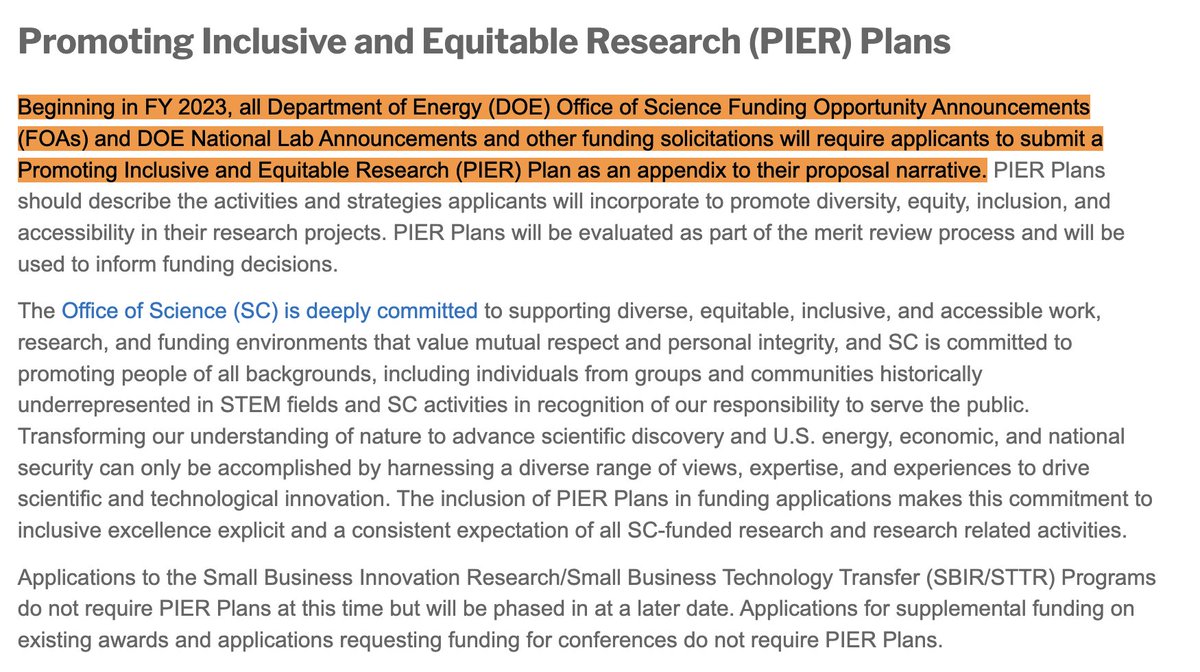
@TheFP All new research proposals must include its Promoting Inclusive and Equitable Research (PIER) Plan.
To get a grant, scientists must describe how equity and inclusion are “an intrinsic element to advancing scientific excellence in the research project.”
To get a grant, scientists must describe how equity and inclusion are “an intrinsic element to advancing scientific excellence in the research project.”
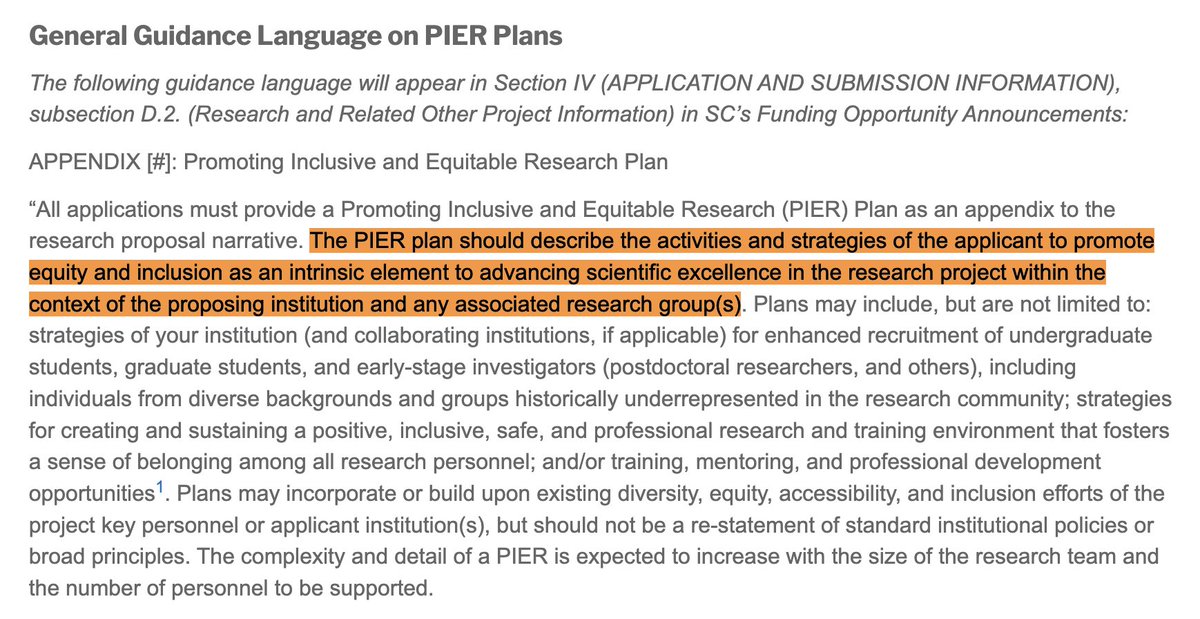
@TheFP One medical researcher at an elite institution who requested anonymity told me that grants for medical research increasingly use veiled ideological language that focuses on issues such as health equity and racial disparities.
@TheFP “The answer is preordained: The cause of disparities is racism,” he told me. “If you find some other explanation, even if it’s technically correct, that’s problematic.”
@TheFP This fixation can have a stultifying effect on medical research, and eventually medical care, the researcher told me.
“We’re creating fake research and fake standards, aligning ideology with medicine, and undermining our basic ability to engage in meaningful sensemaking.”
“We’re creating fake research and fake standards, aligning ideology with medicine, and undermining our basic ability to engage in meaningful sensemaking.”
@TheFP Another physician-scientist at a top medical school also pointed out that an all-out focus on research that documents racial disparities crowds out other, more consequential areas of scientific research.
@TheFP “In general, science is a zero-sum game with a relatively limited pot of resources,” he told me.
"It means that biological discovery, mechanisms of basic science, new insights, new molecules, don’t get discovered because you have this other type of research going on.”
"It means that biological discovery, mechanisms of basic science, new insights, new molecules, don’t get discovered because you have this other type of research going on.”
@TheFP The physician-scientist was concerned that an obsession with equity has shifted attention away from pursuing groundbreaking scientific breakthroughs that will benefit everyone.
“It’s a very foolish tactic when the death rate from cancer is still as high as it is.”
“It’s a very foolish tactic when the death rate from cancer is still as high as it is.”
@TheFP Despite these concerns, DEI continues to demonstrate higher education.
A growing number of universities, such as UCLA, where Gordon Klein ran into trouble, now consider their faculty members’ contributions to DEI as a criterion for hiring, promotion, and tenure.
A growing number of universities, such as UCLA, where Gordon Klein ran into trouble, now consider their faculty members’ contributions to DEI as a criterion for hiring, promotion, and tenure.
@TheFP Meanwhile, UC Berkeley’s rubric for evaluating DEI contributions—which is used by universities around the country—dictates a low score for a candidate who professes a desire to “treat everyone the same.” 

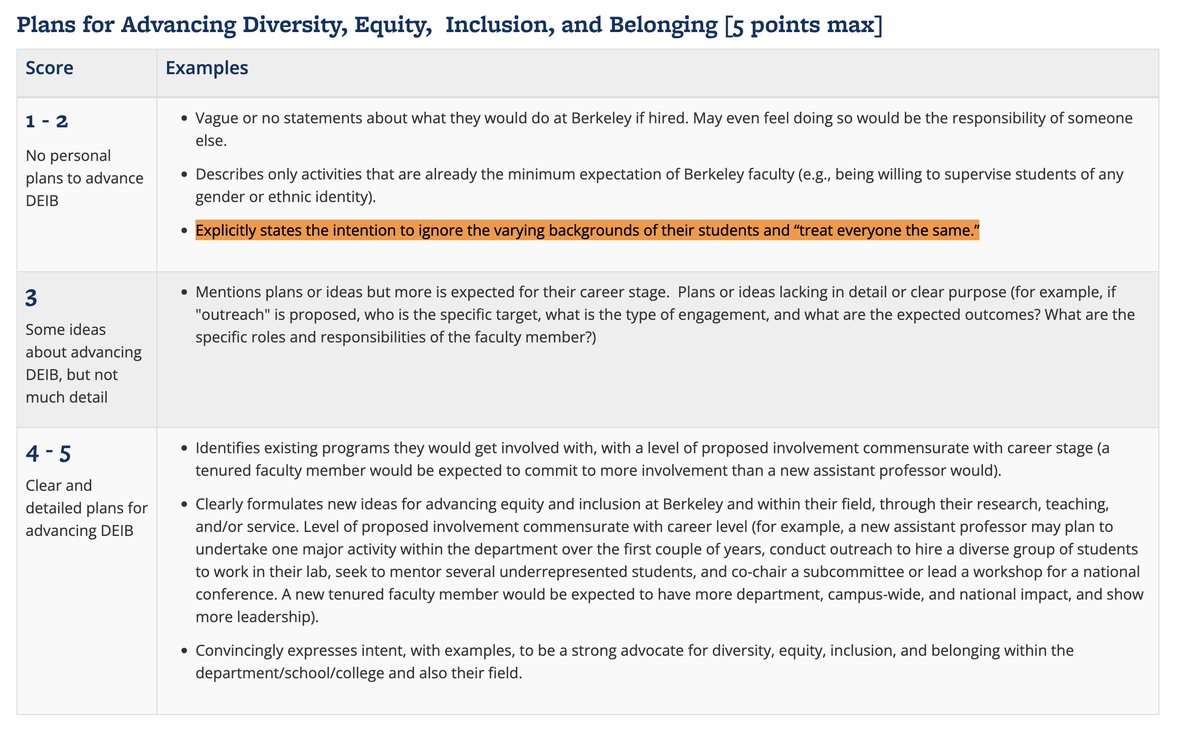

@TheFP To boost faculty diversity, many universities are resorting to a practice known as “cluster hiring.” To increase the likelihood of hiring minority faculty members, cluster hiring initiatives often assess candidates’ contributions to DEI as the first criterion.
@TheFP In 2018, UC Berkeley launched a cluster hire across several life sciences departments. Of 893 qualified applicants, the hiring committee narrowed the pool to 214 based solely on the candidates’ diversity statements. 
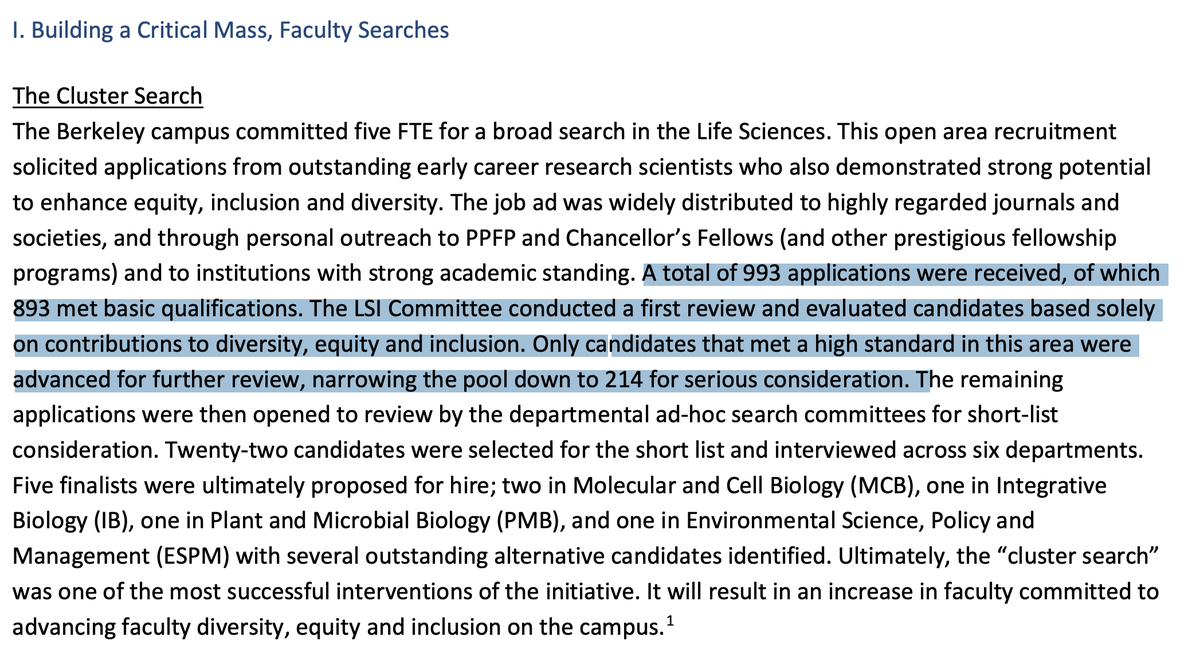
@TheFP The initiative yielded eyebrow-raising results: The initial applicant pool was 53.7 percent white and 13.2 percent Hispanic. The shortlist was 13.6 white and 59.1 percent Hispanic. 
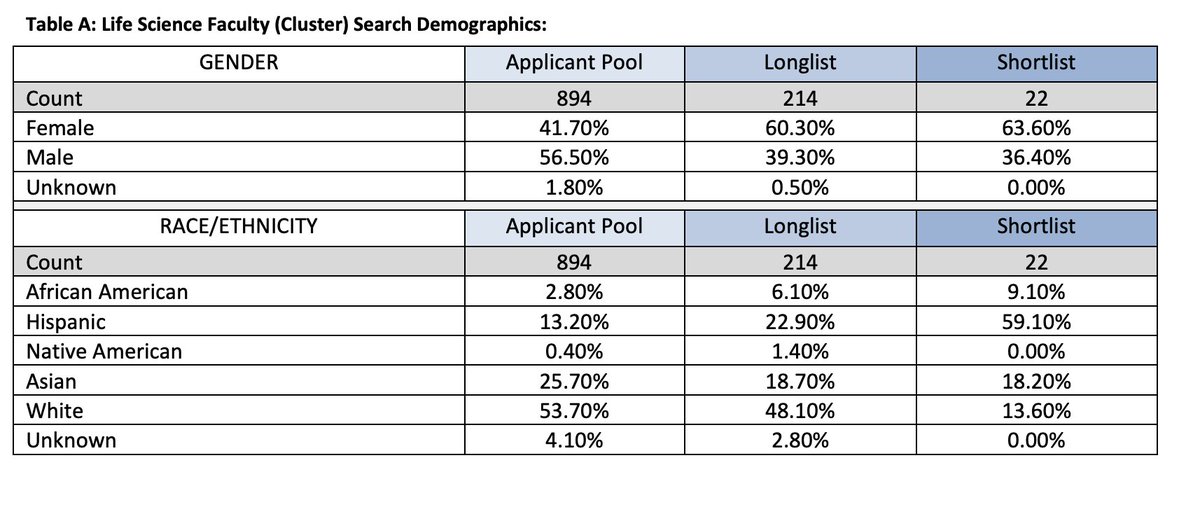
@TheFP Cluster hiring is becoming a favored DEI tool throughout academia.
In 2020, the NIH began a $241 million cluster hiring grant program—specifying that the faculty hired must have “a demonstrated commitment to promoting diversity and inclusive excellence.”
In 2020, the NIH began a $241 million cluster hiring grant program—specifying that the faculty hired must have “a demonstrated commitment to promoting diversity and inclusive excellence.”
@TheFP Little is being done to halt the intrusion of DEI into higher education.
Academic jobs are perilously scarce for many disciplines, which encourages graduate students and young scholars to avoid rocking the boat at all costs.
Academic jobs are perilously scarce for many disciplines, which encourages graduate students and young scholars to avoid rocking the boat at all costs.
@TheFP “There’s just a general fear that, if you push back, you’ll be marked for being on the wrong side,” one professor told me.
“There’s no way to guard against how your colleagues will evaluate you for tenure in the future.”
“There’s no way to guard against how your colleagues will evaluate you for tenure in the future.”
@TheFP And as allegiance to DEI has become a formal job requirement, even many senior faculty members remain silent out of a sense of self-preservation.
As former HMS dean Jeffrey Flier told me, “It is considered politically and socially tenuous to bring up the subject.”
As former HMS dean Jeffrey Flier told me, “It is considered politically and socially tenuous to bring up the subject.”
@TheFP Still, some are pushing back. In August, the Academic Freedom Alliance released a statement, coauthored by Flier, calling for an end to the practice of mandatory DEI statements.
FIRE has also issued numerous statements opposing DEI requirements that violate the First Amendment.
FIRE has also issued numerous statements opposing DEI requirements that violate the First Amendment.
@TheFP The organization I work for, the National Association of Scholars, frequently publishes reports on DEI, serving as a watchdog on the issue.
nas.org
nas.org
@TheFP Haidt hopes his resignation from the SPSP will be a wake-up call for his fellow academics, but his outlook is pessimistic.
“It is morally wrong, but it’s also incompatible with scientific inquiry, which requires total fidelity to the truth.”
“It is morally wrong, but it’s also incompatible with scientific inquiry, which requires total fidelity to the truth.”
@TheFP “The way that institutions collapse is that they become structurally stupid. That means people can no longer object, they have to go along with the orthodoxy.”
It's not just about psychology. “It’s about the biggest problem facing our country—the collapse of our institutions.”
It's not just about psychology. “It’s about the biggest problem facing our country—the collapse of our institutions.”
• • •
Missing some Tweet in this thread? You can try to
force a refresh


